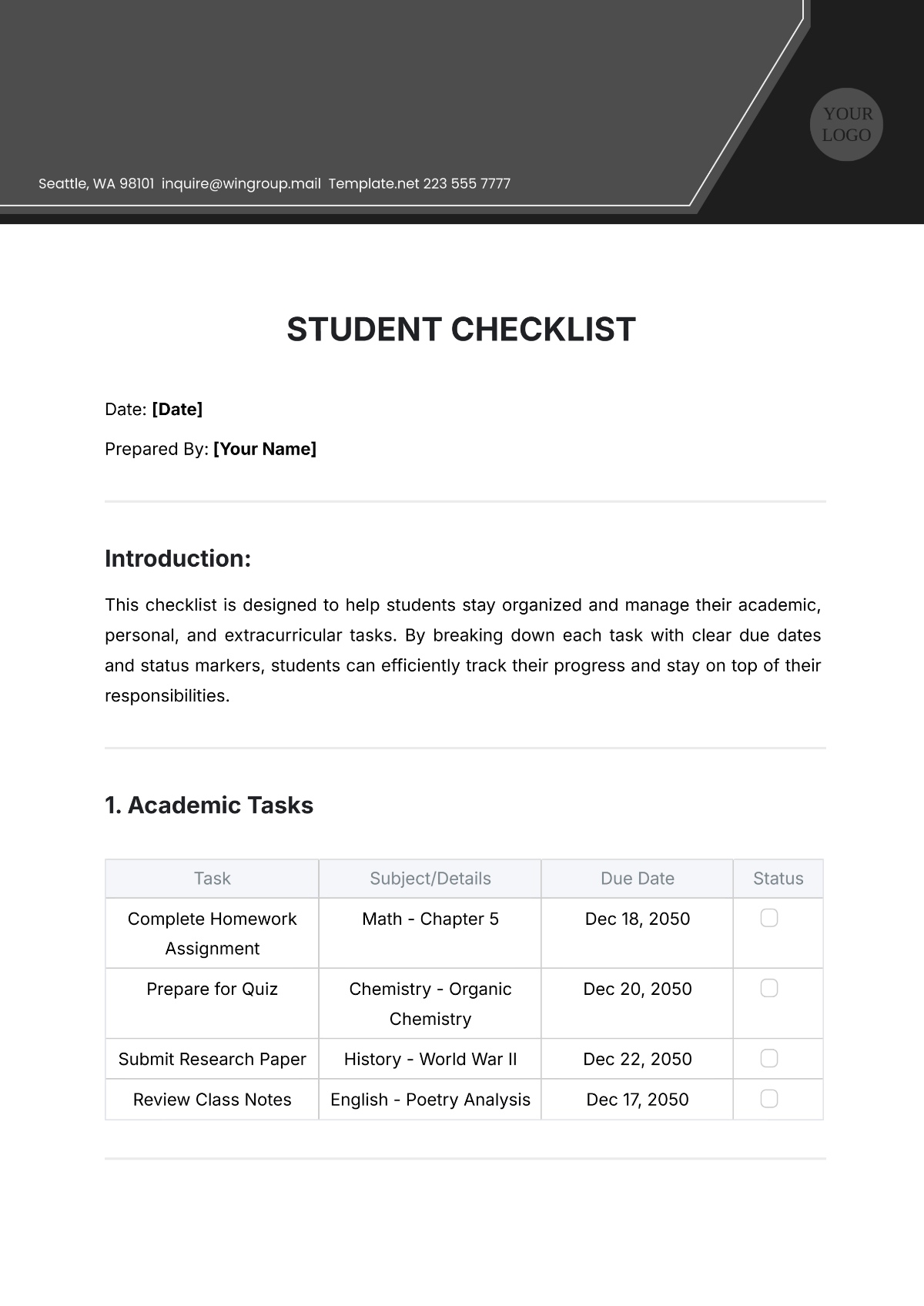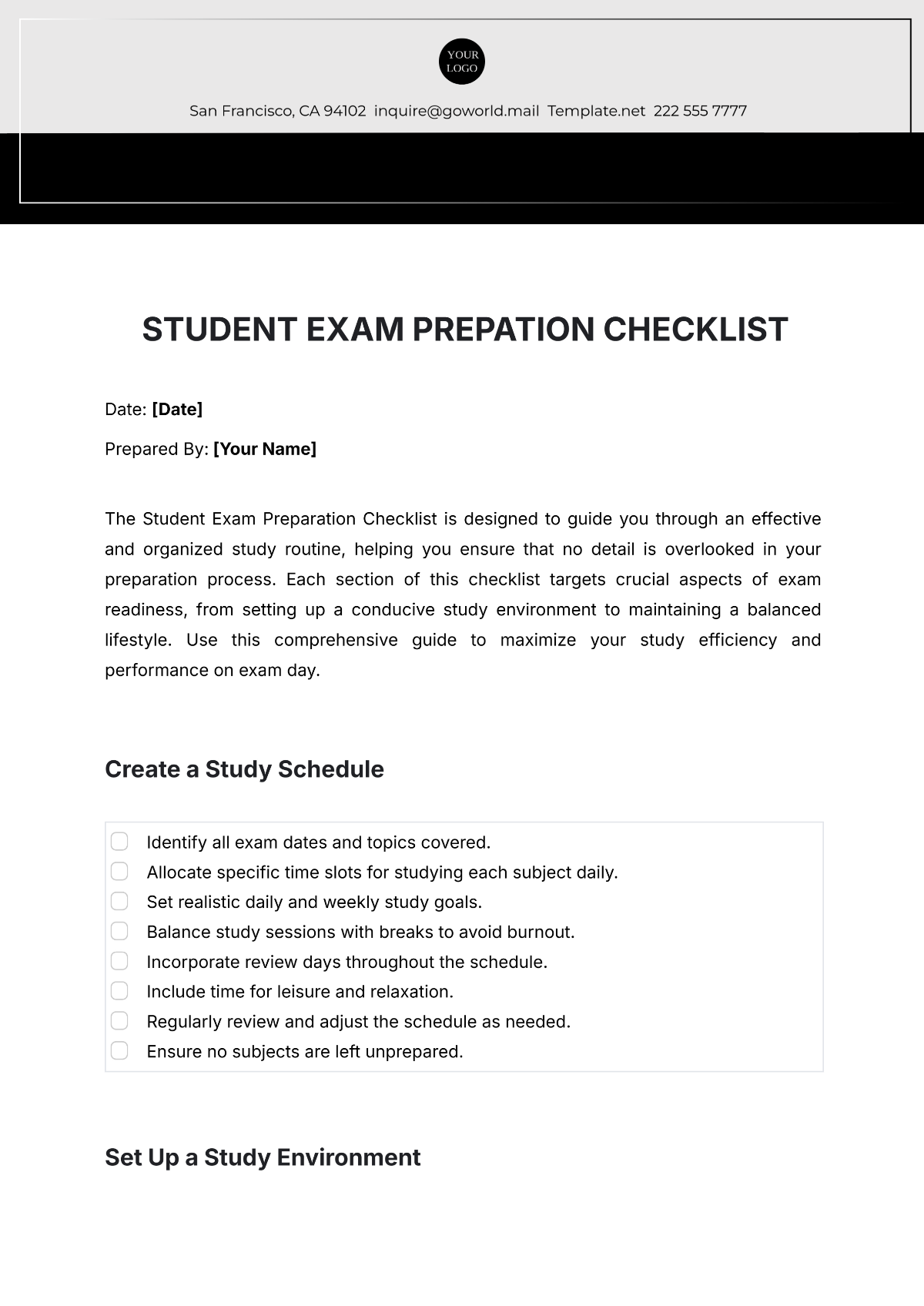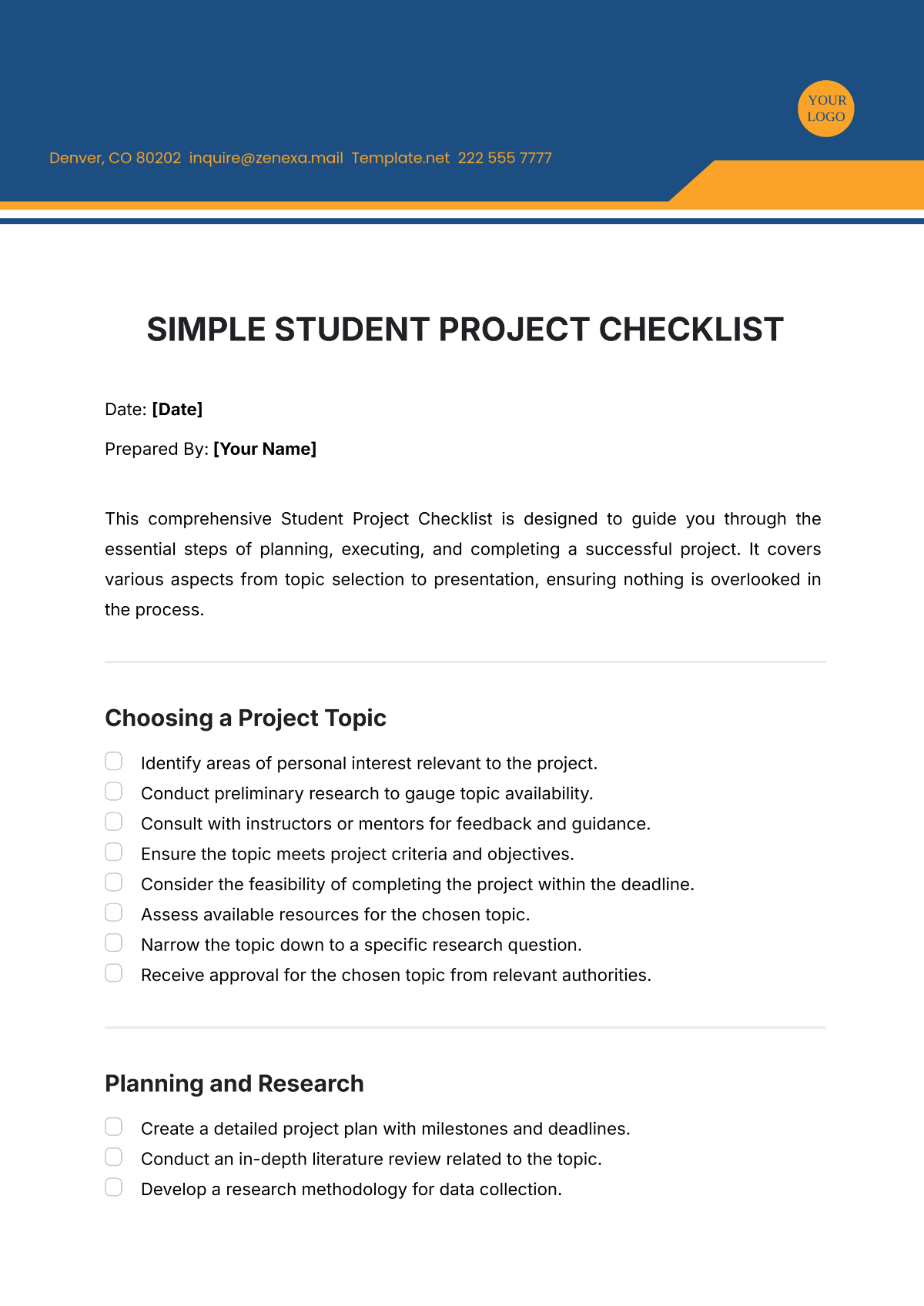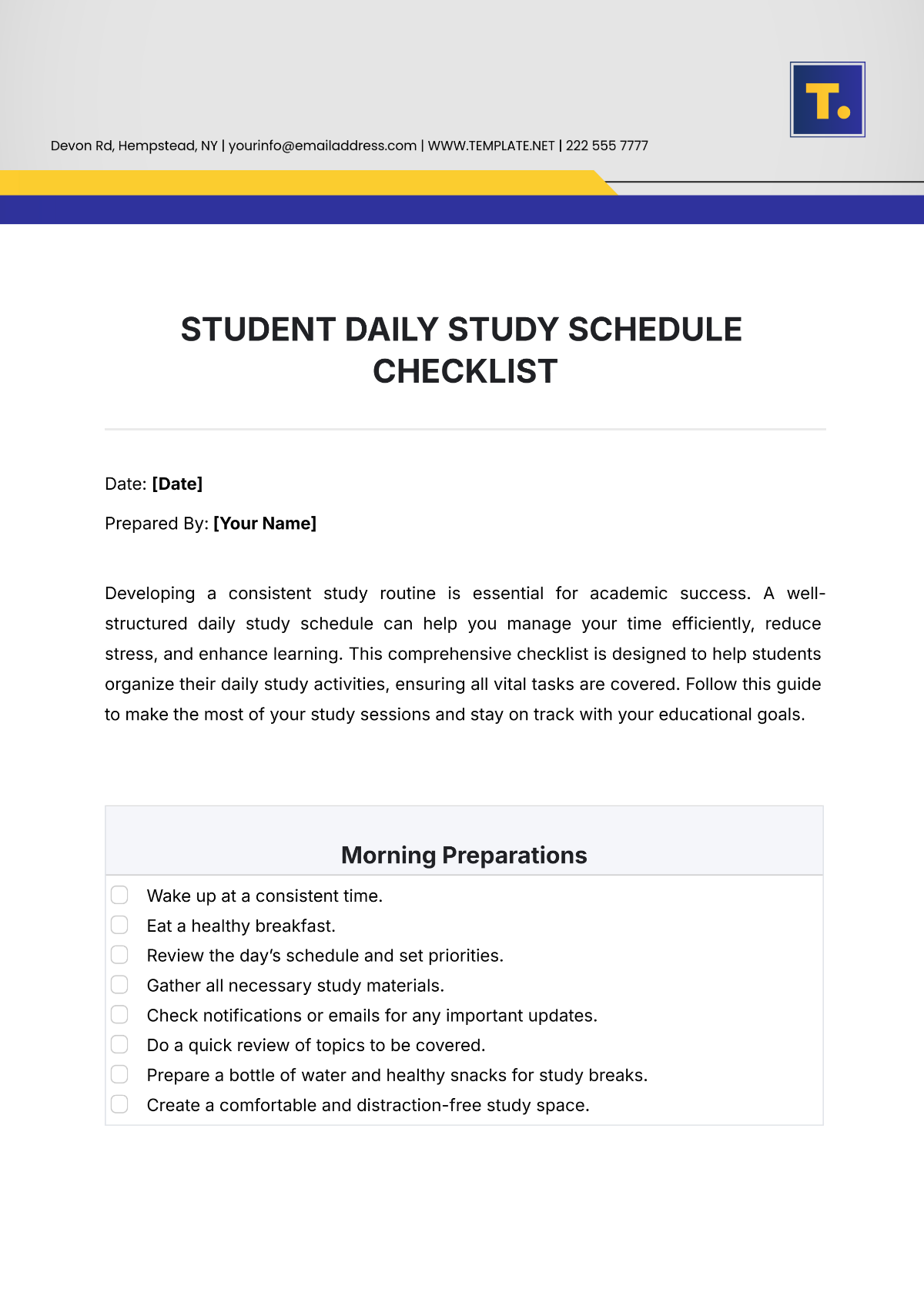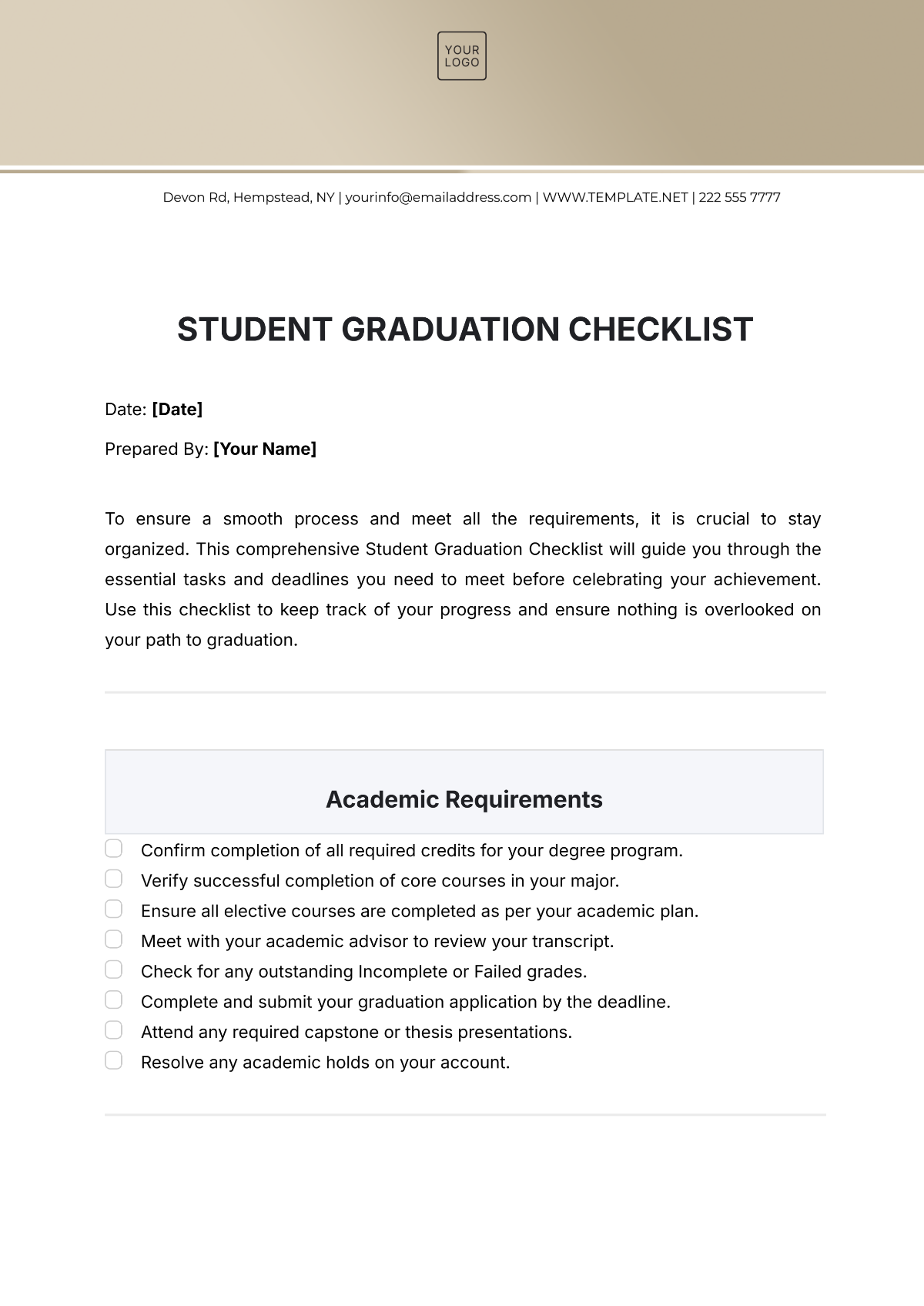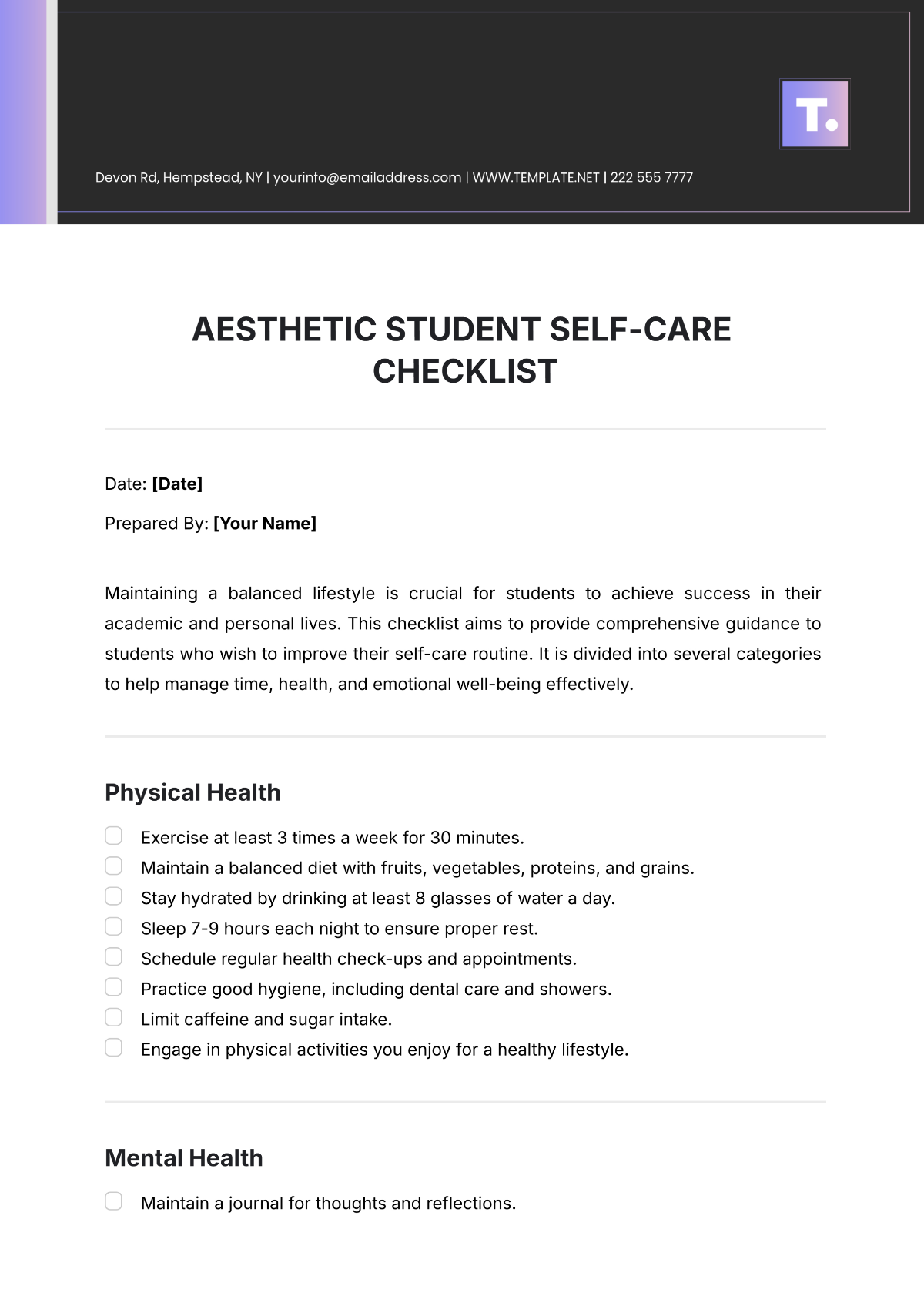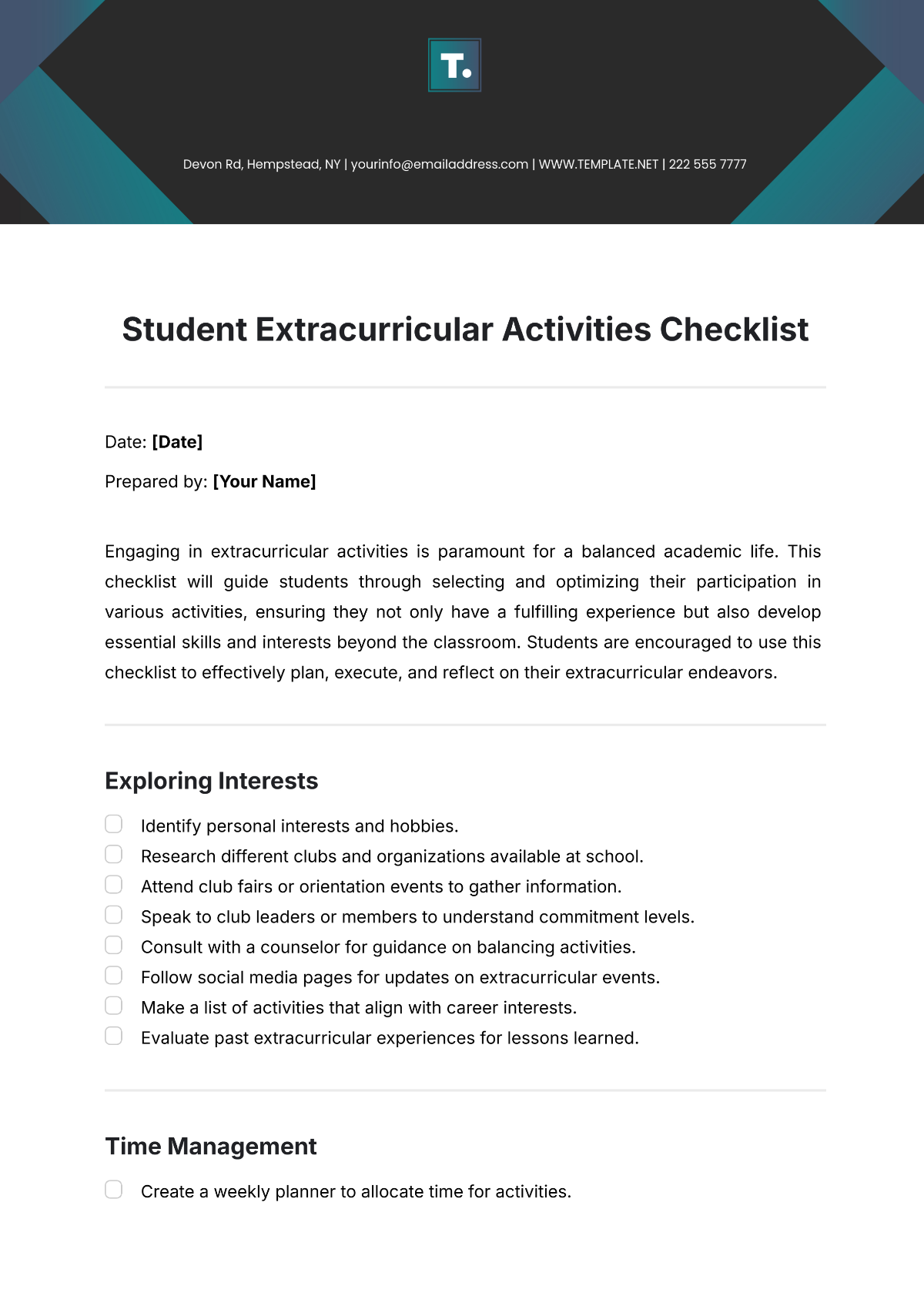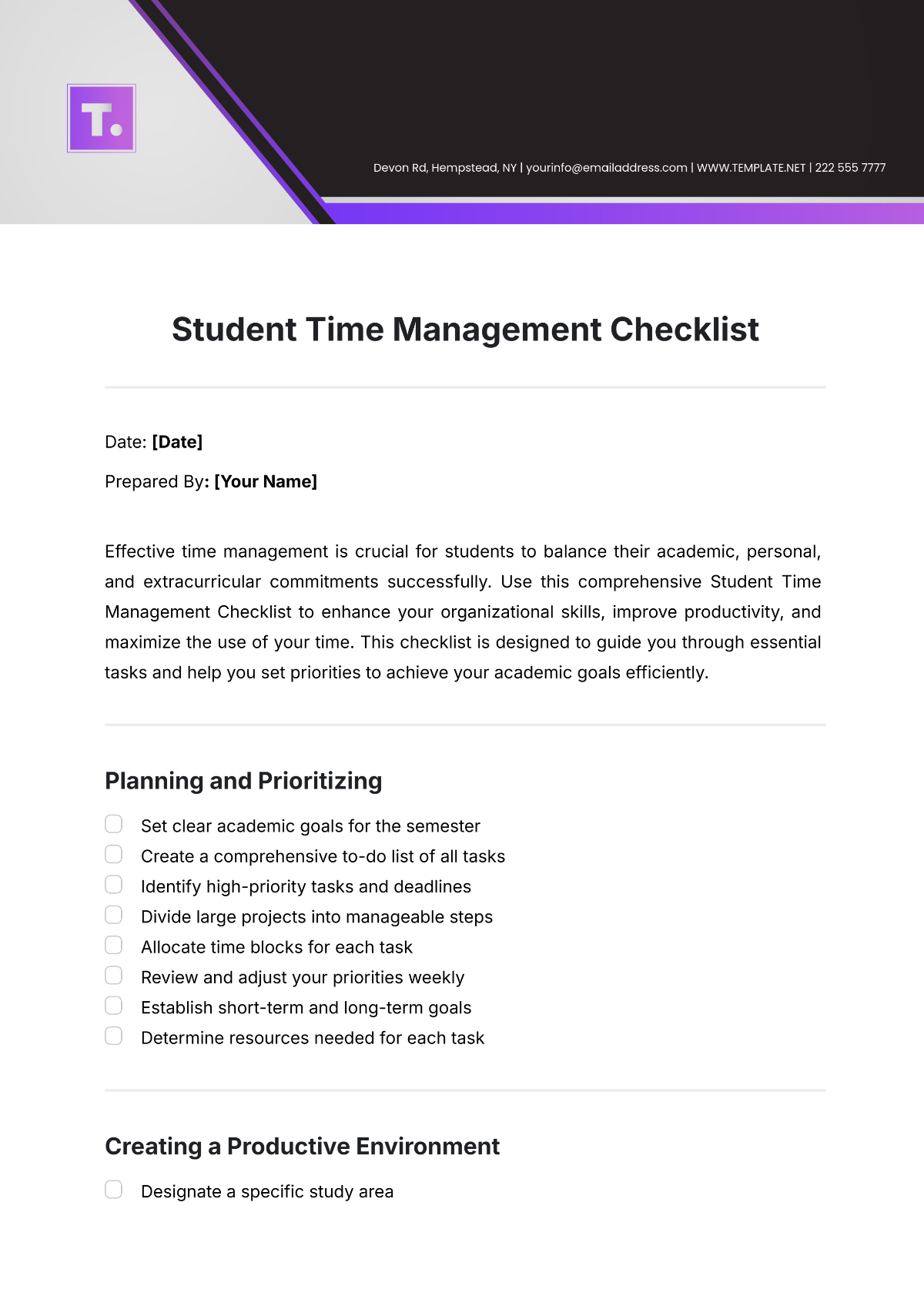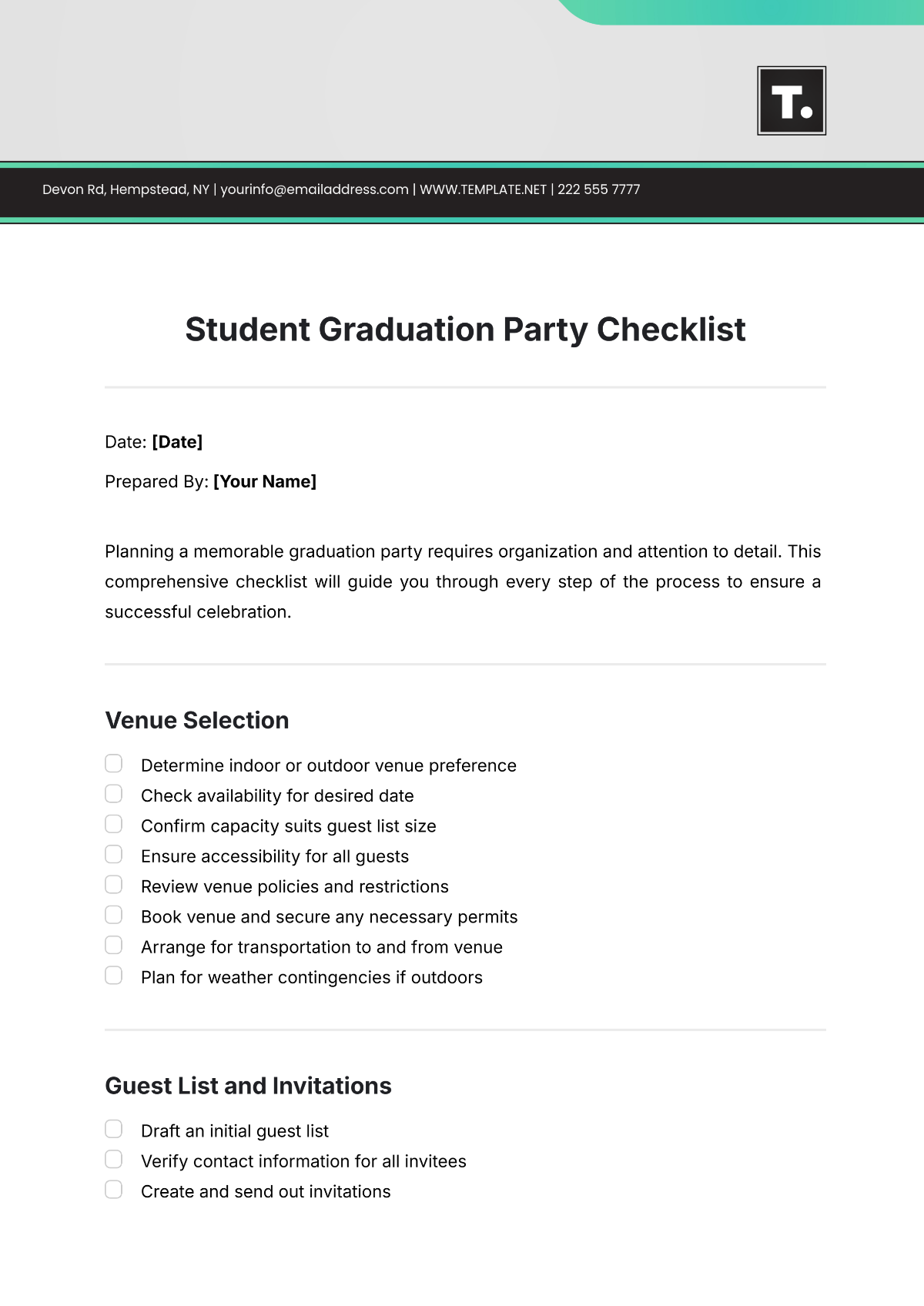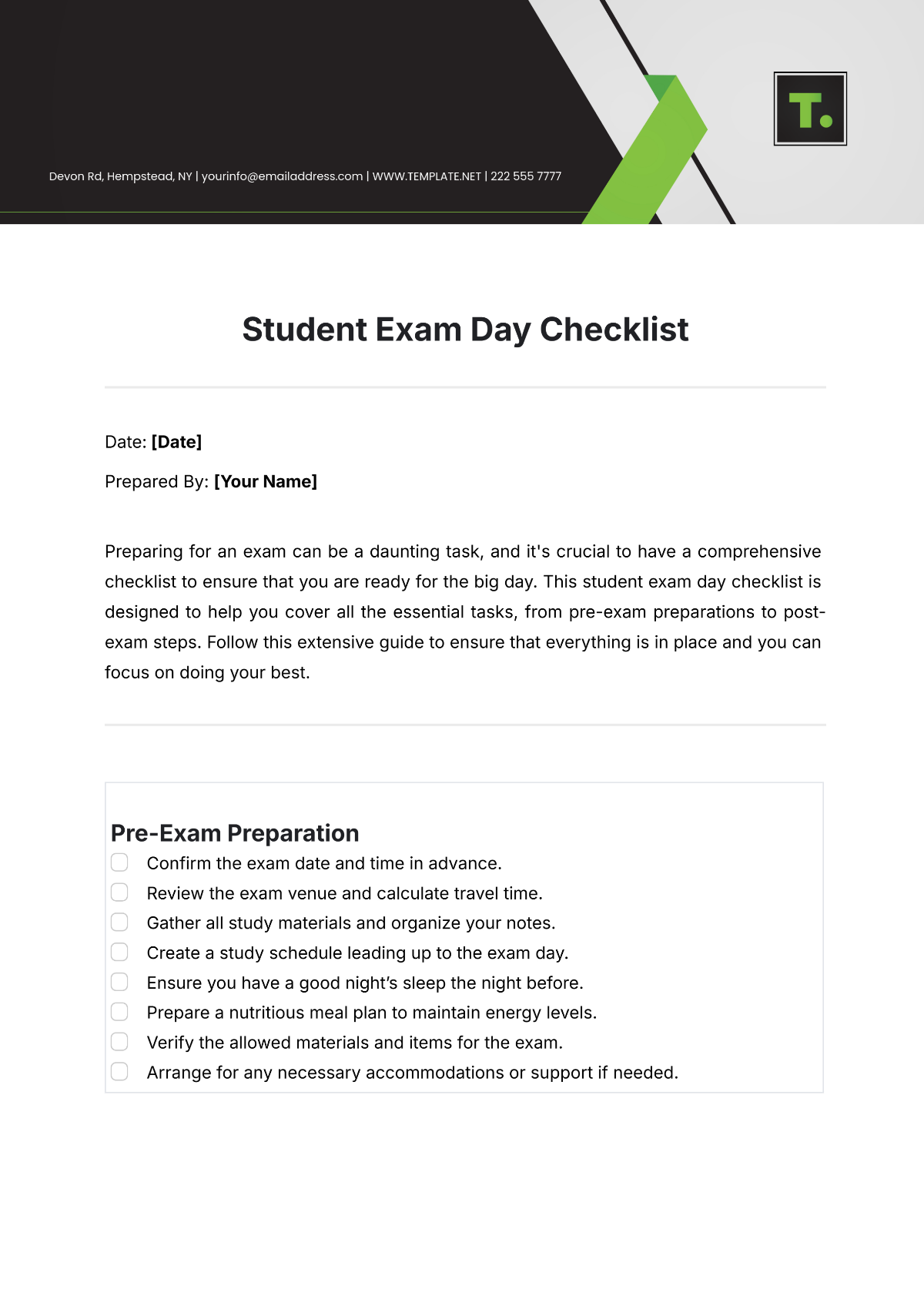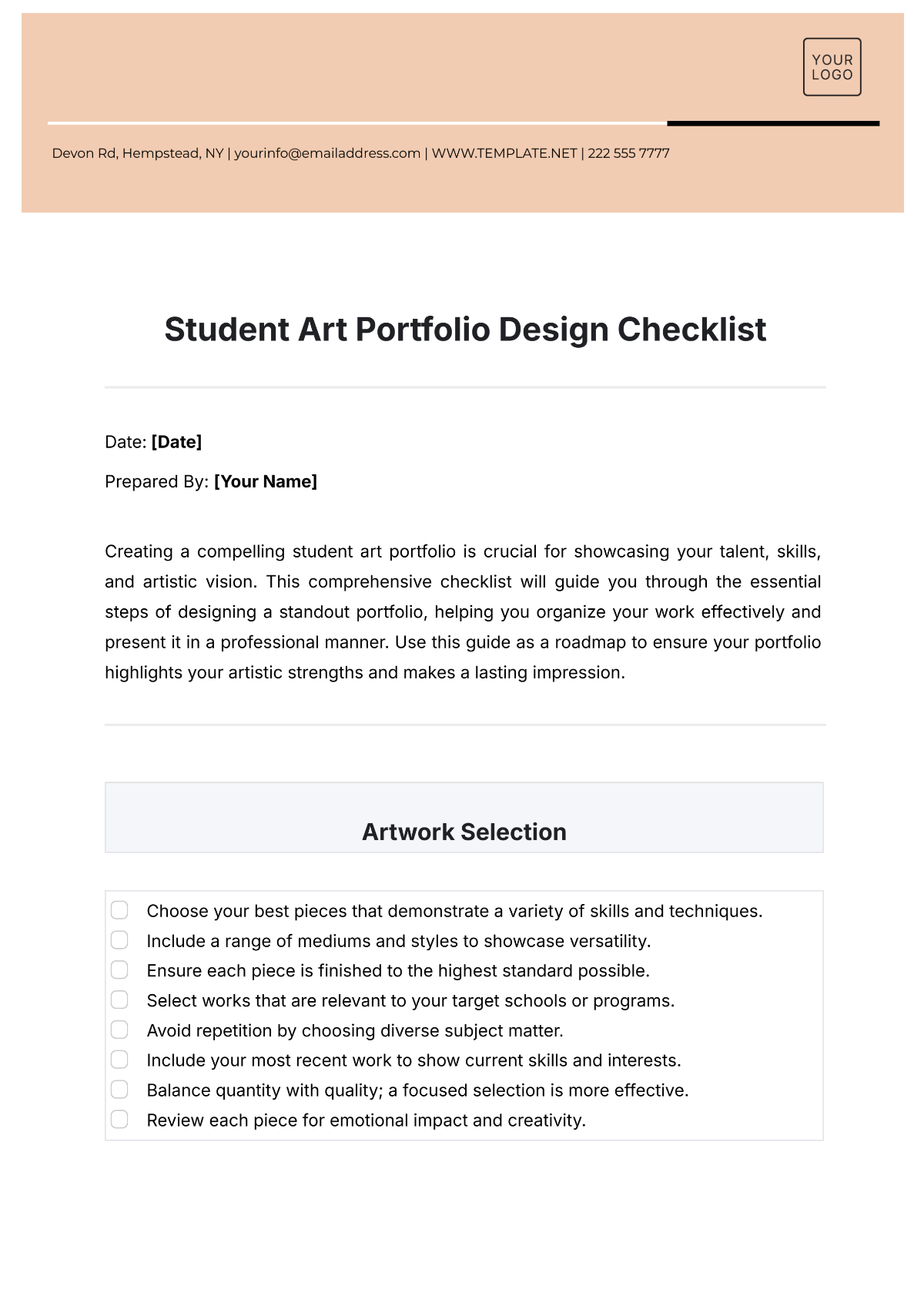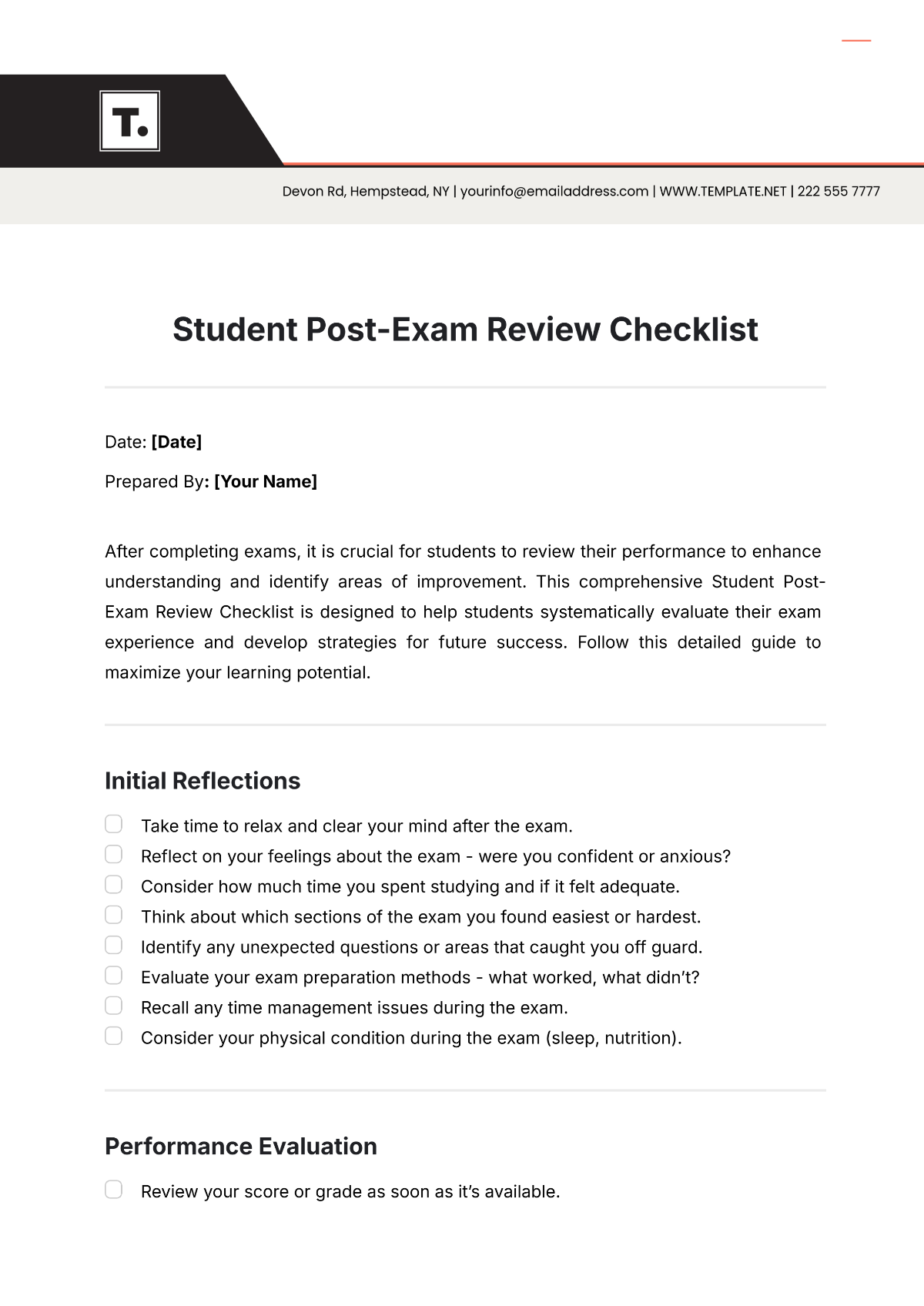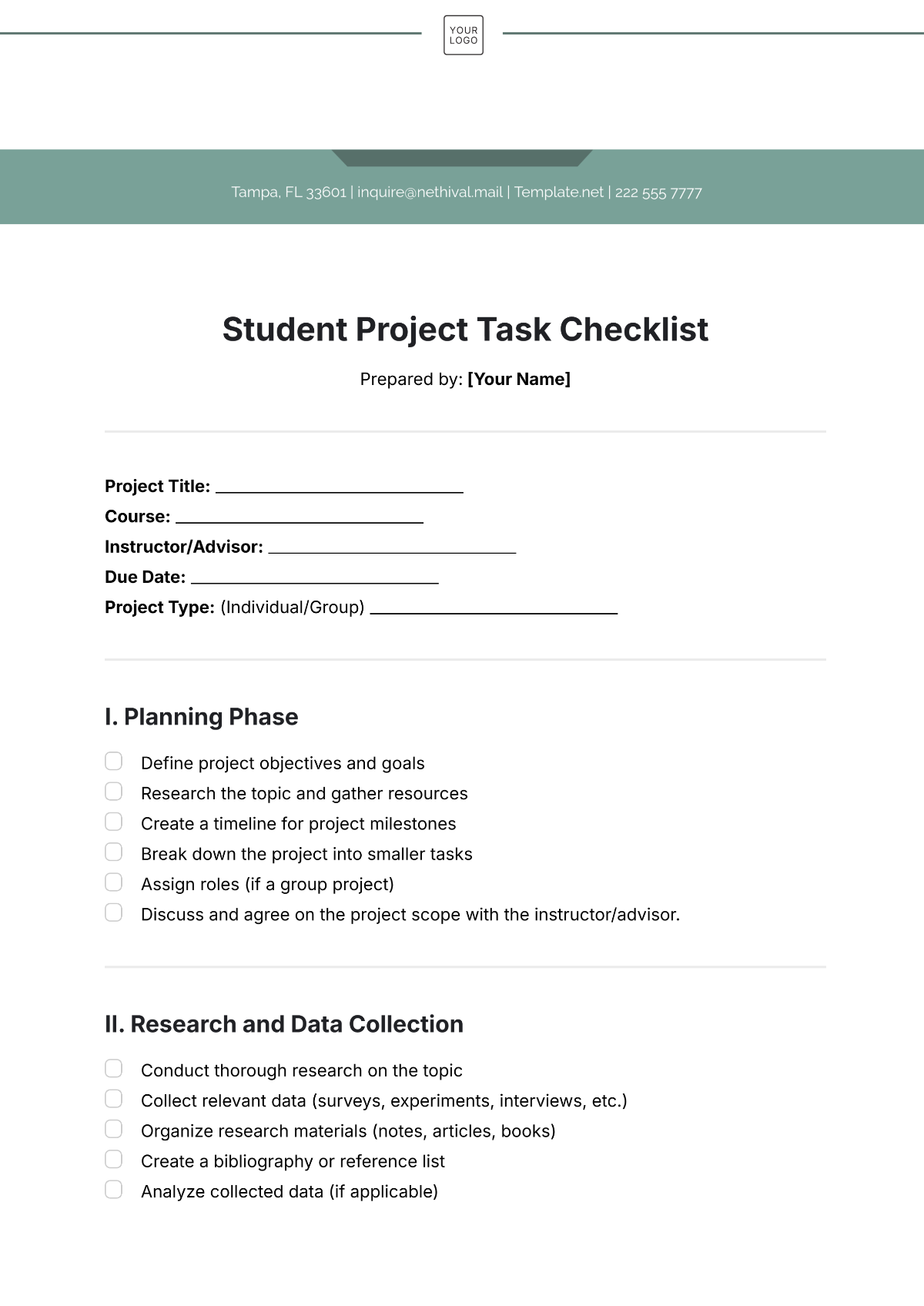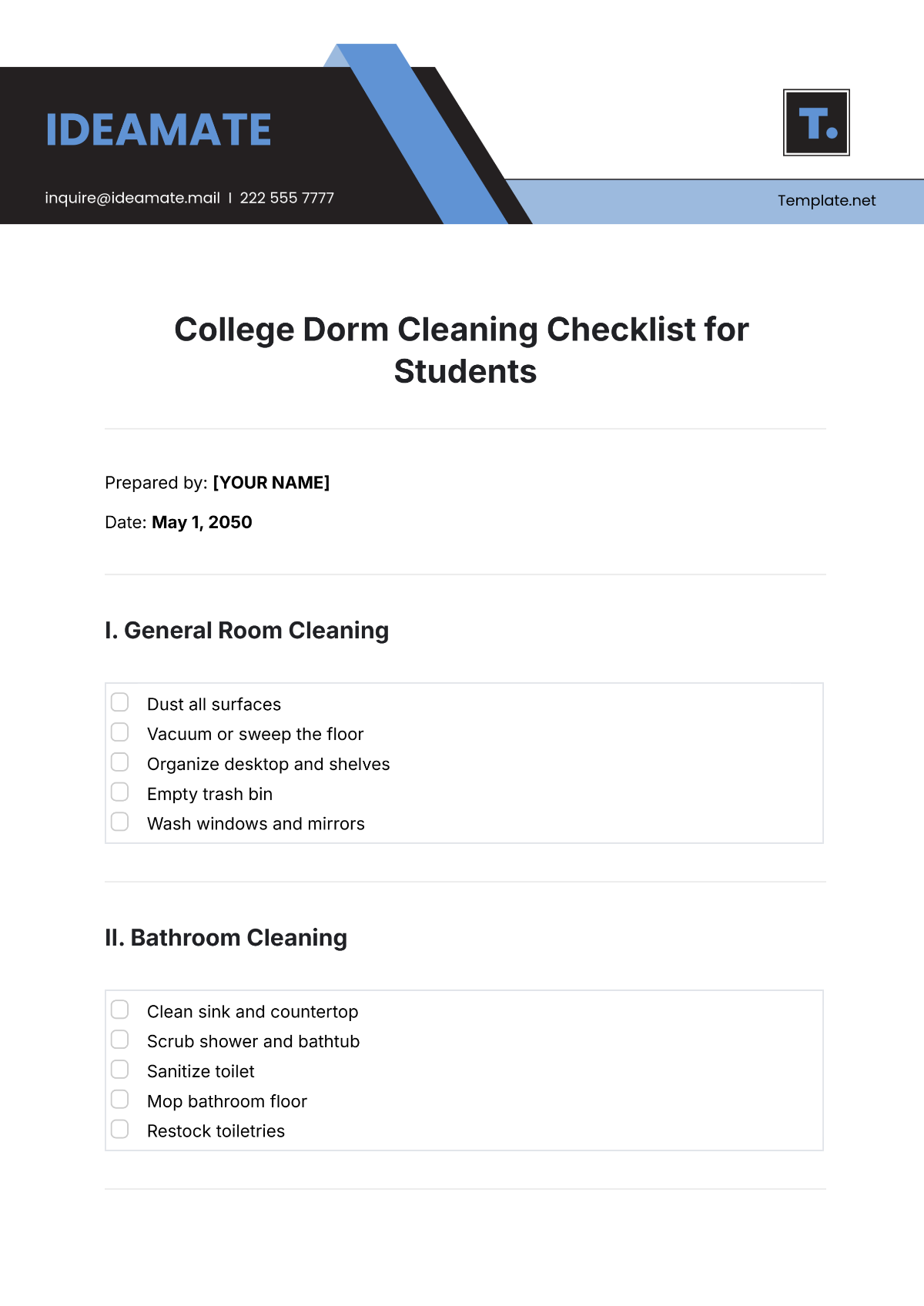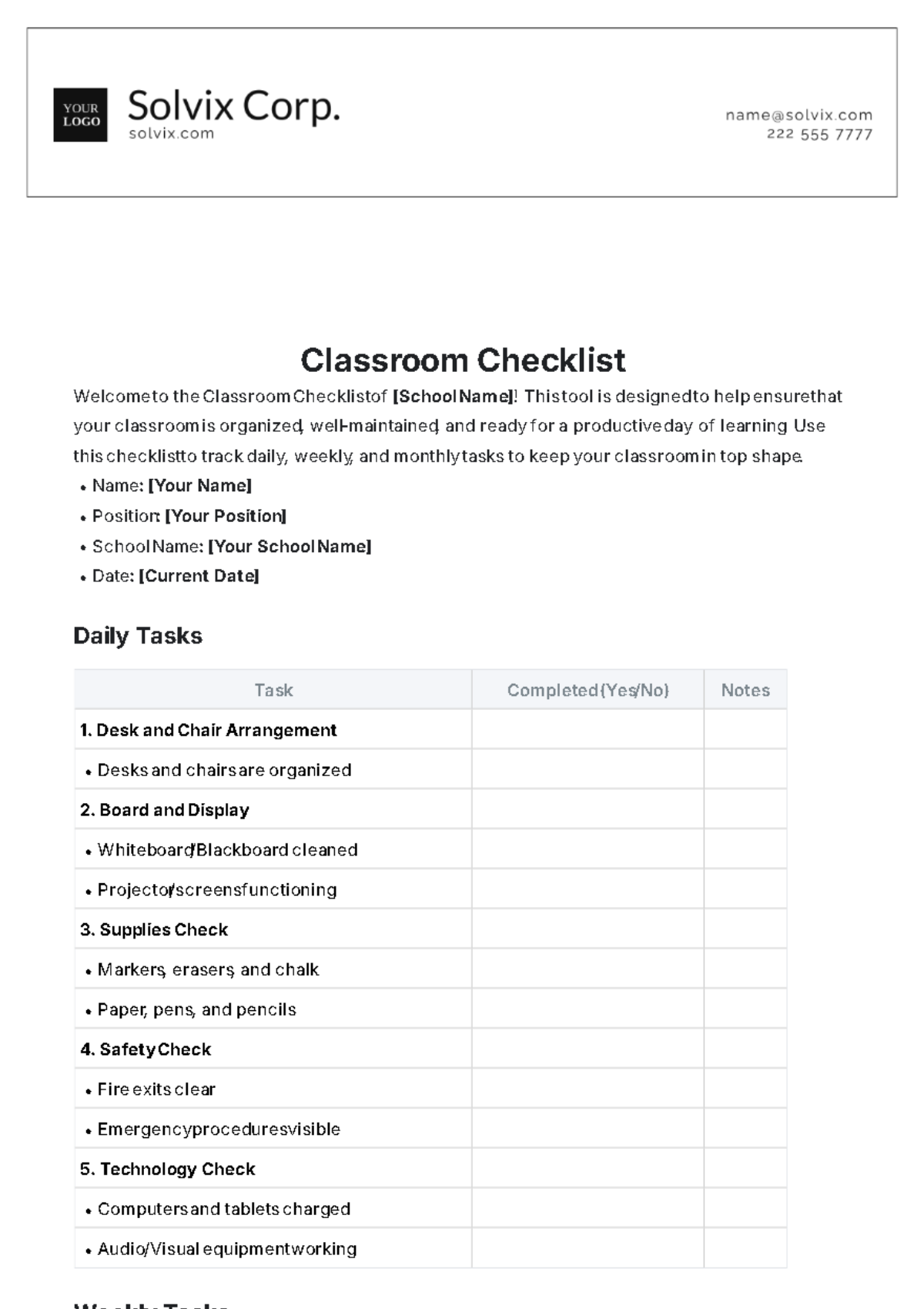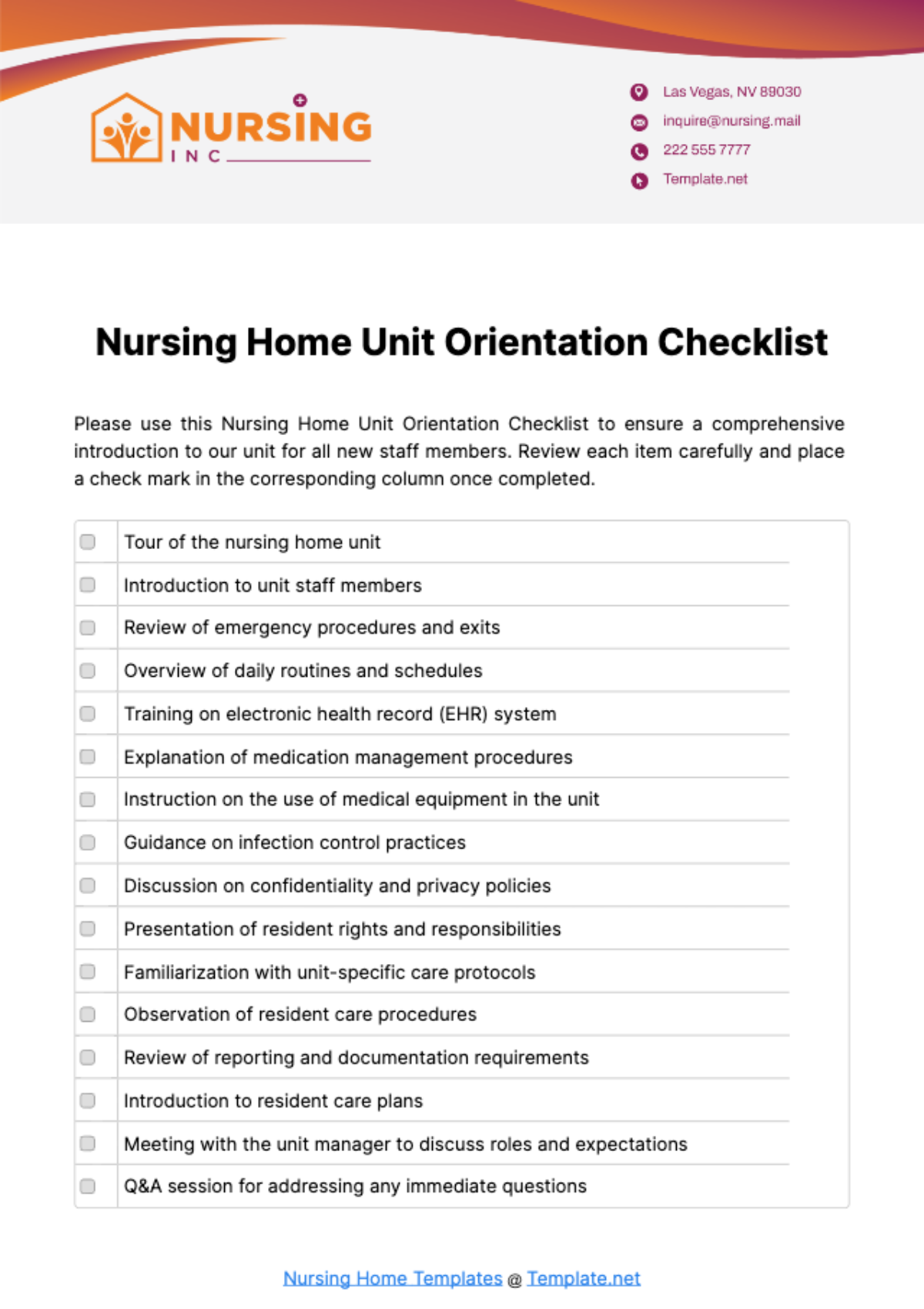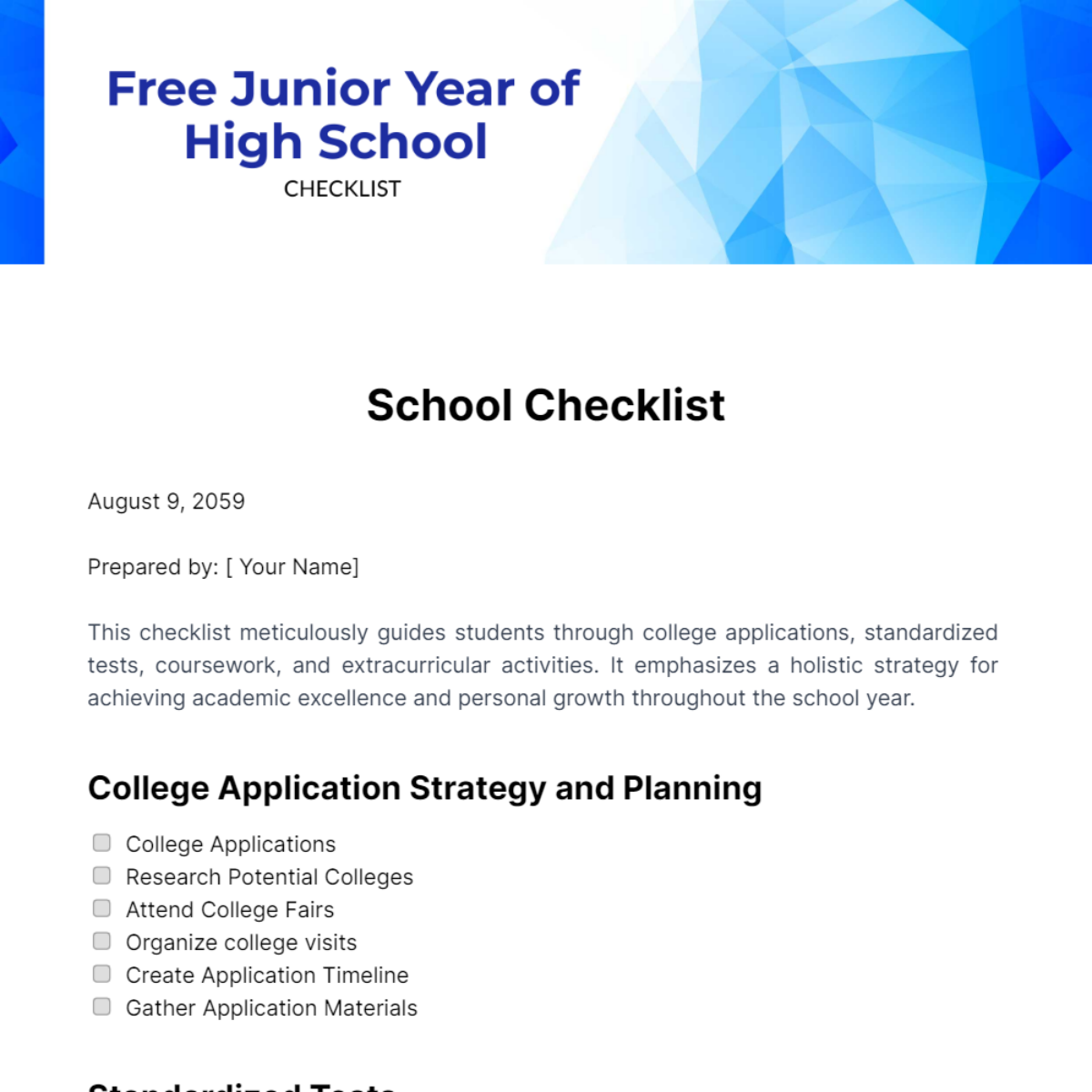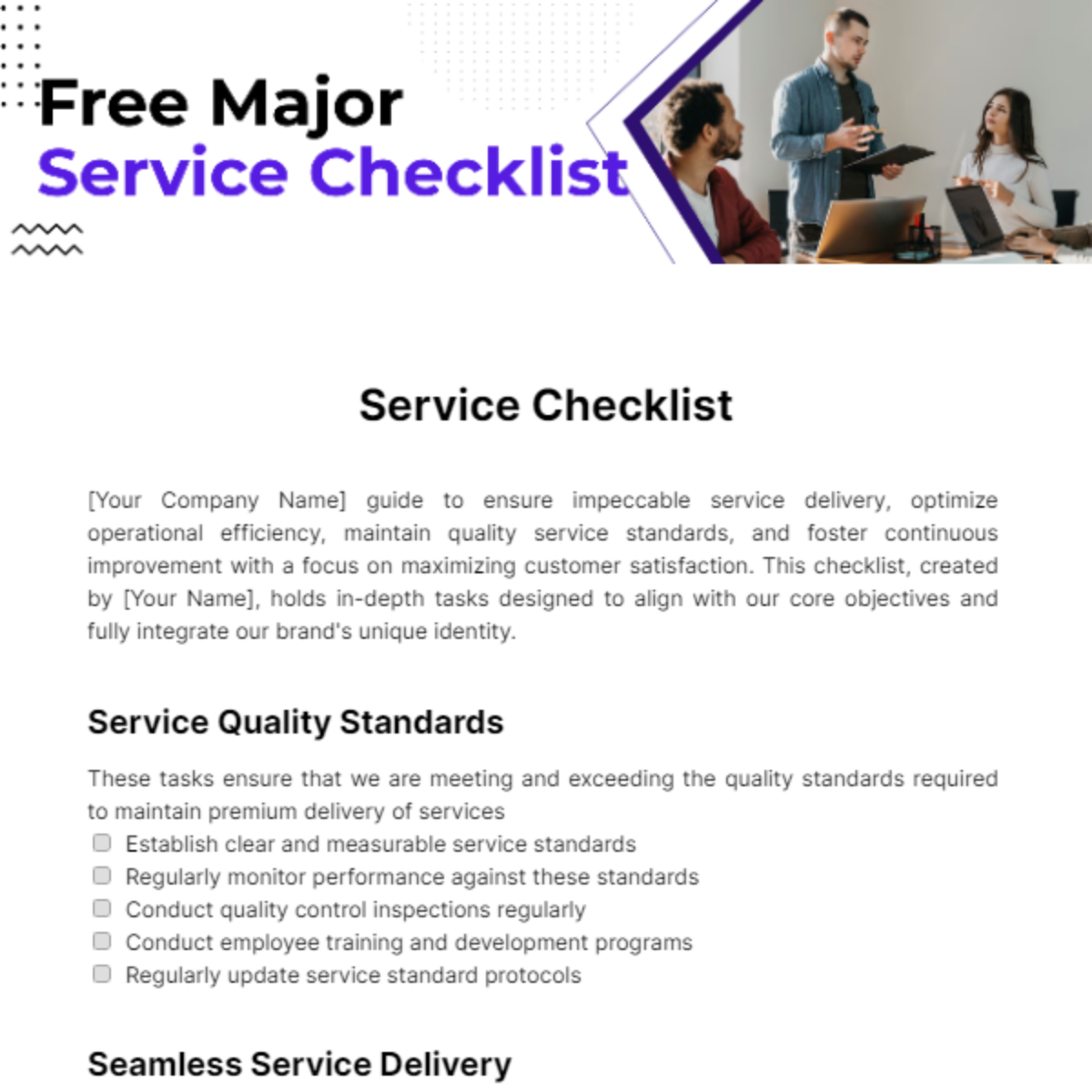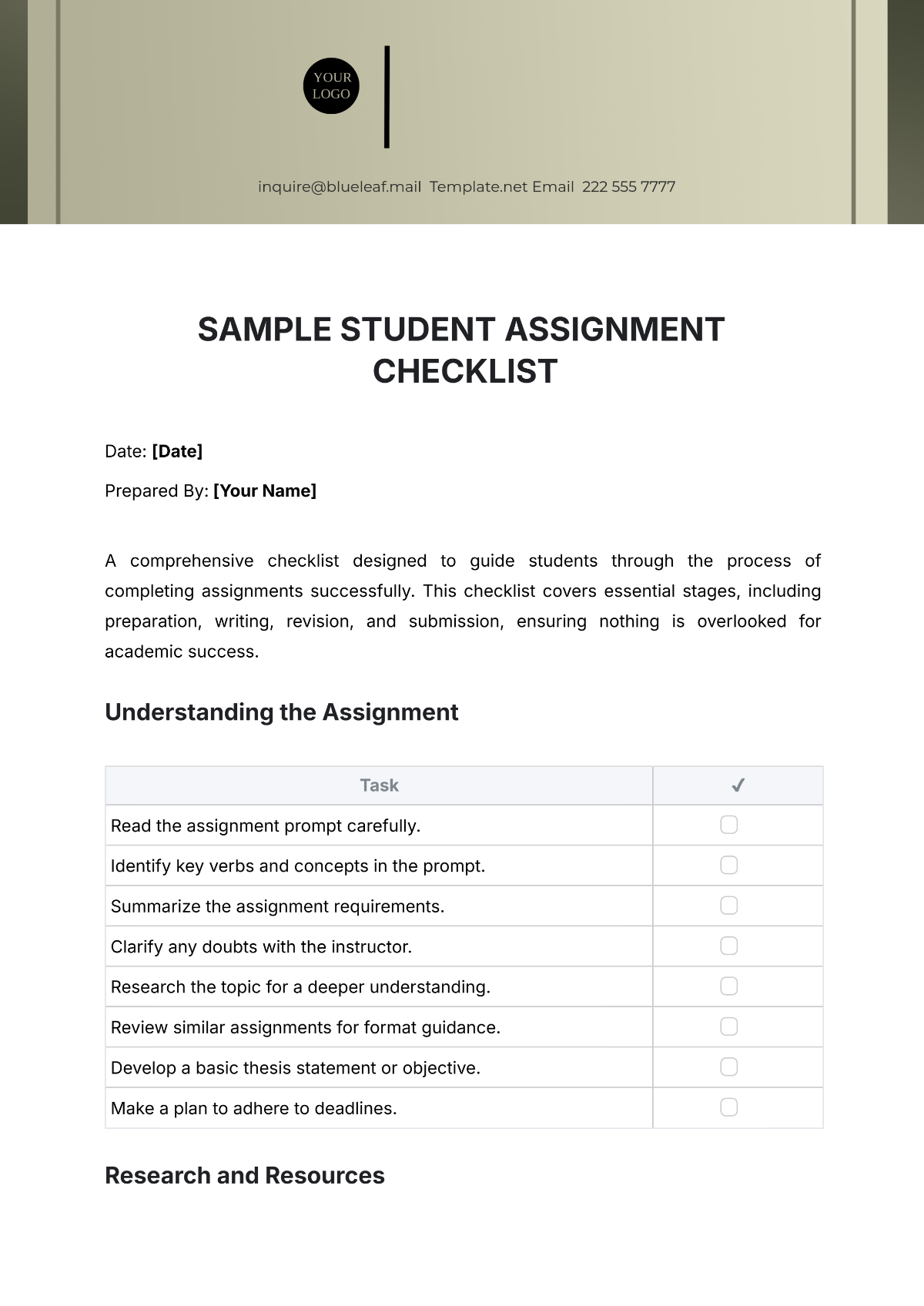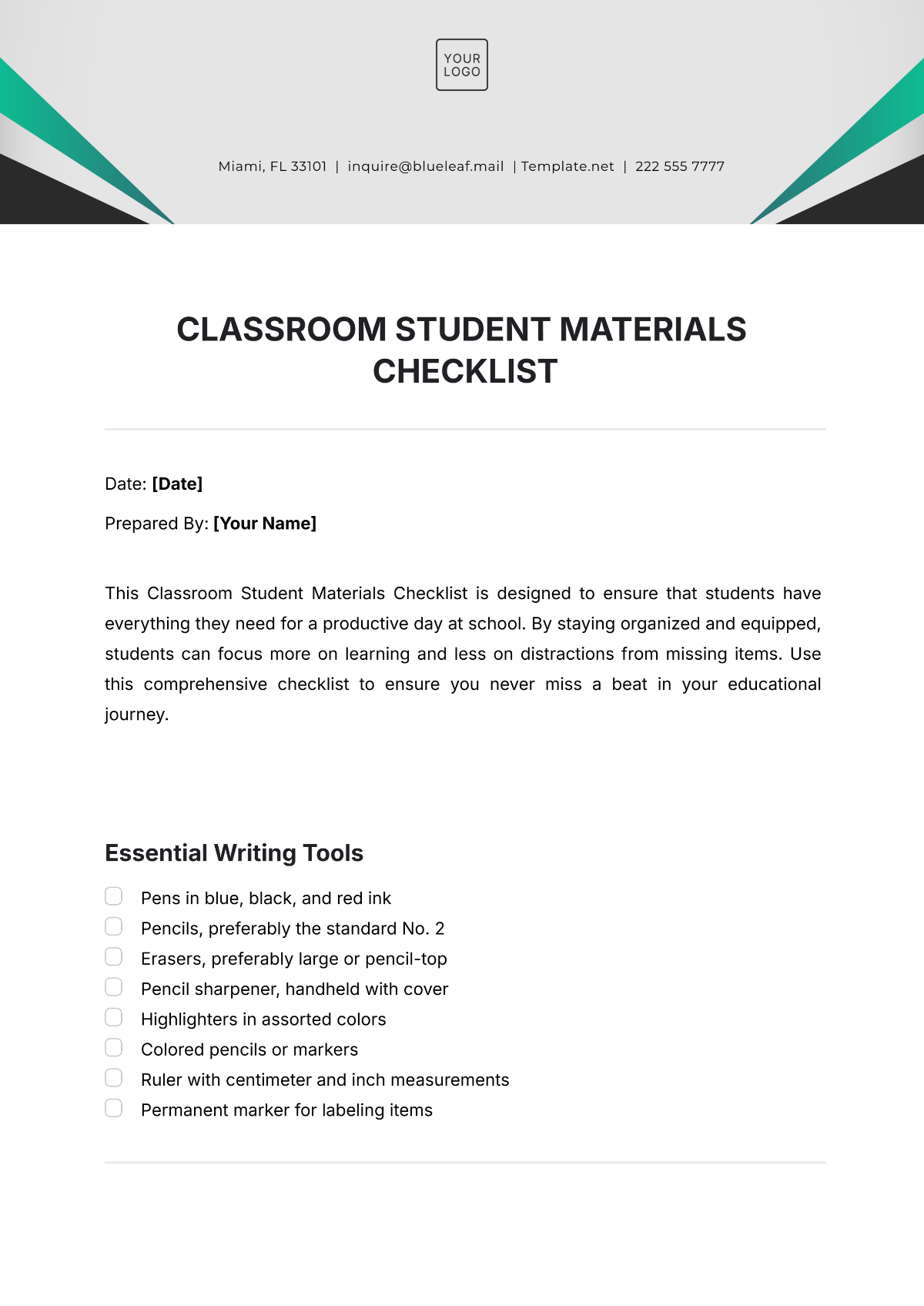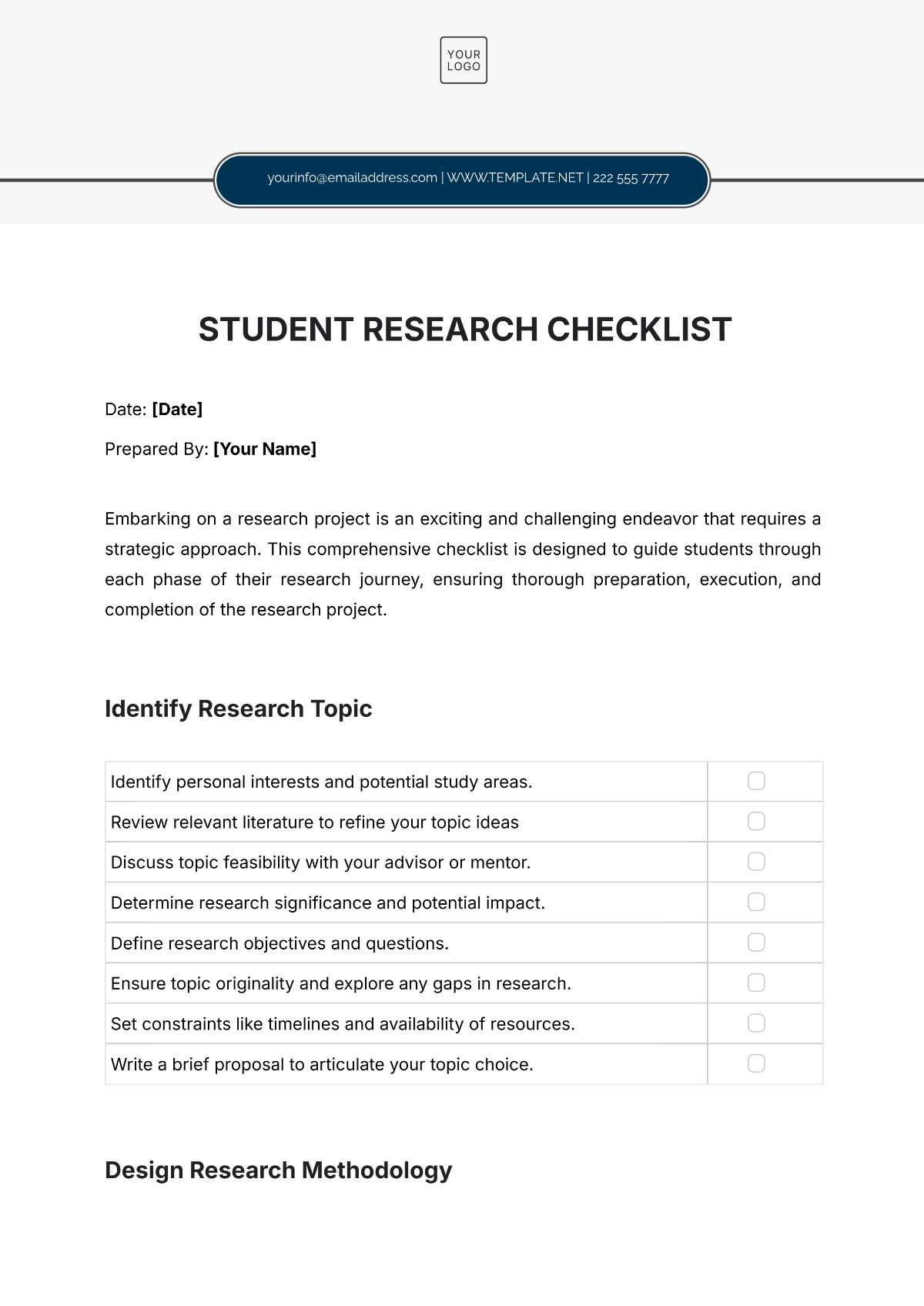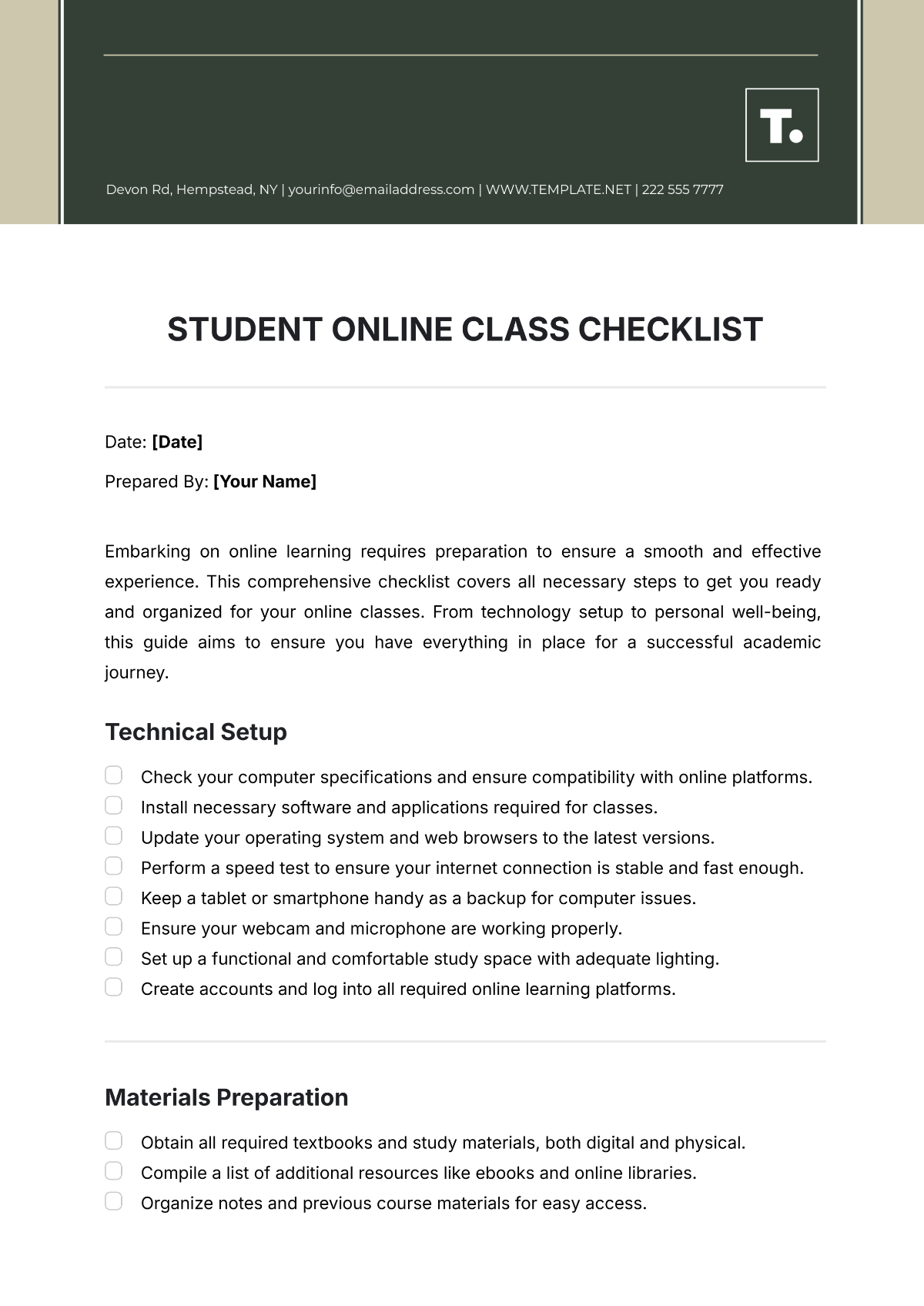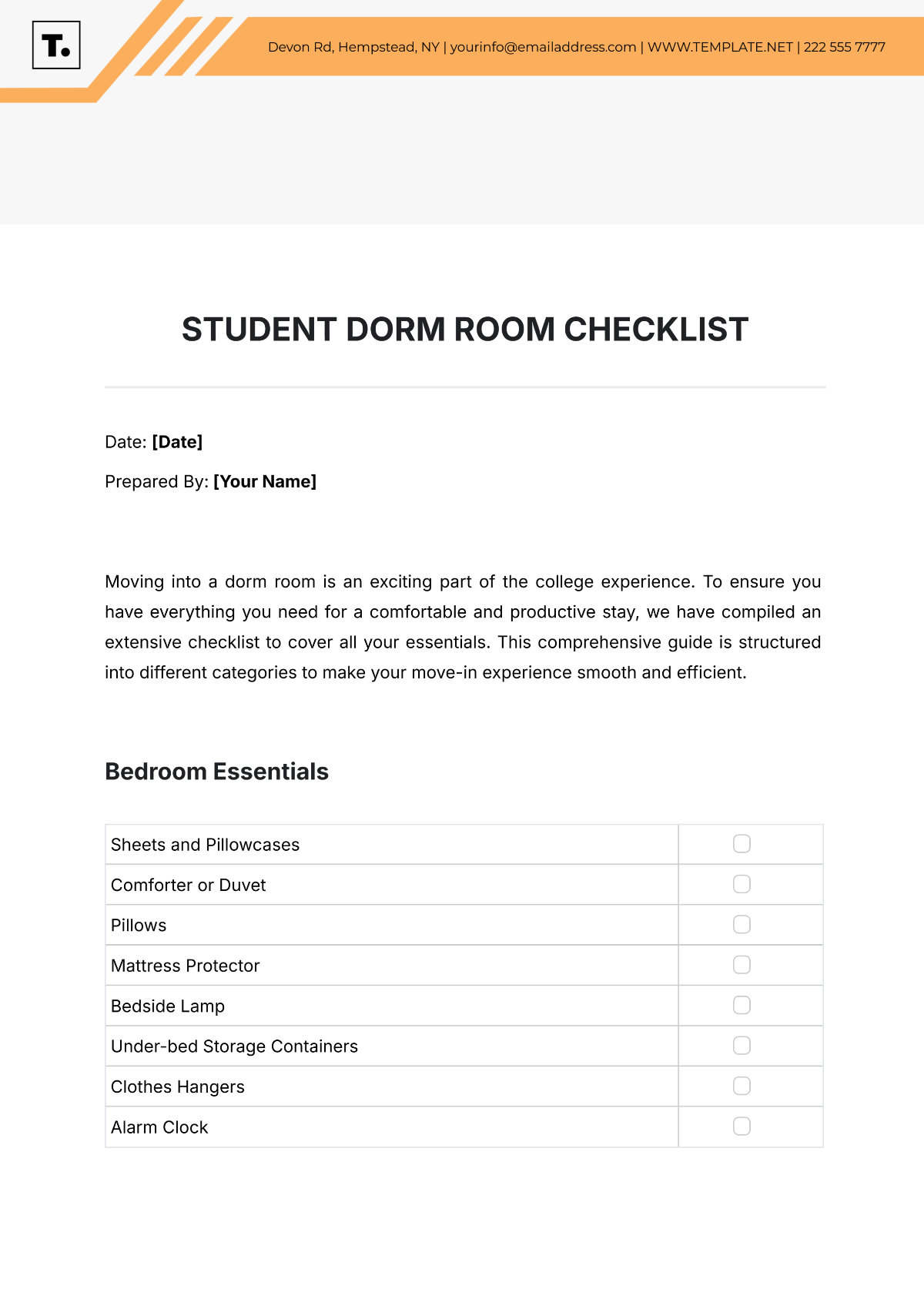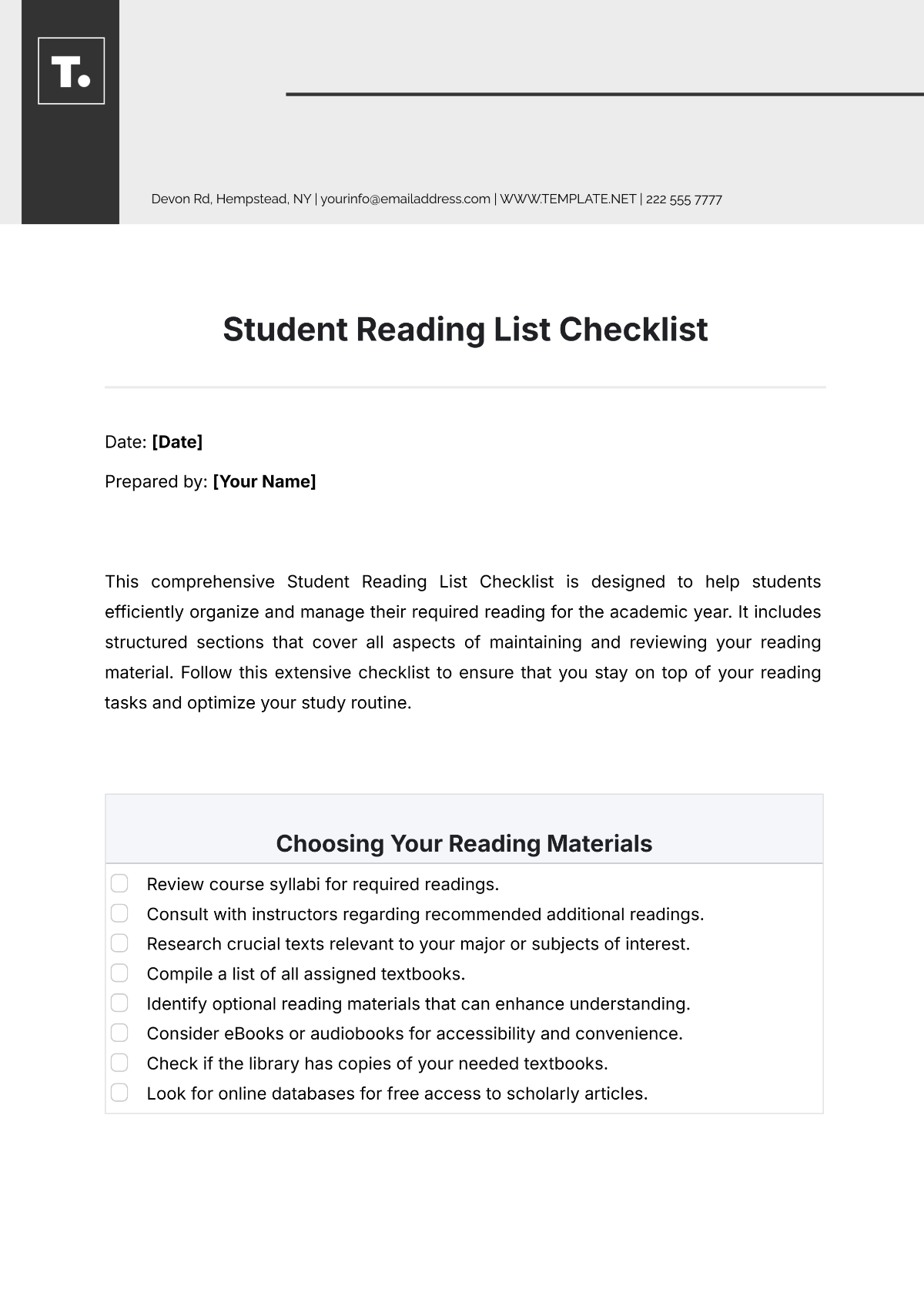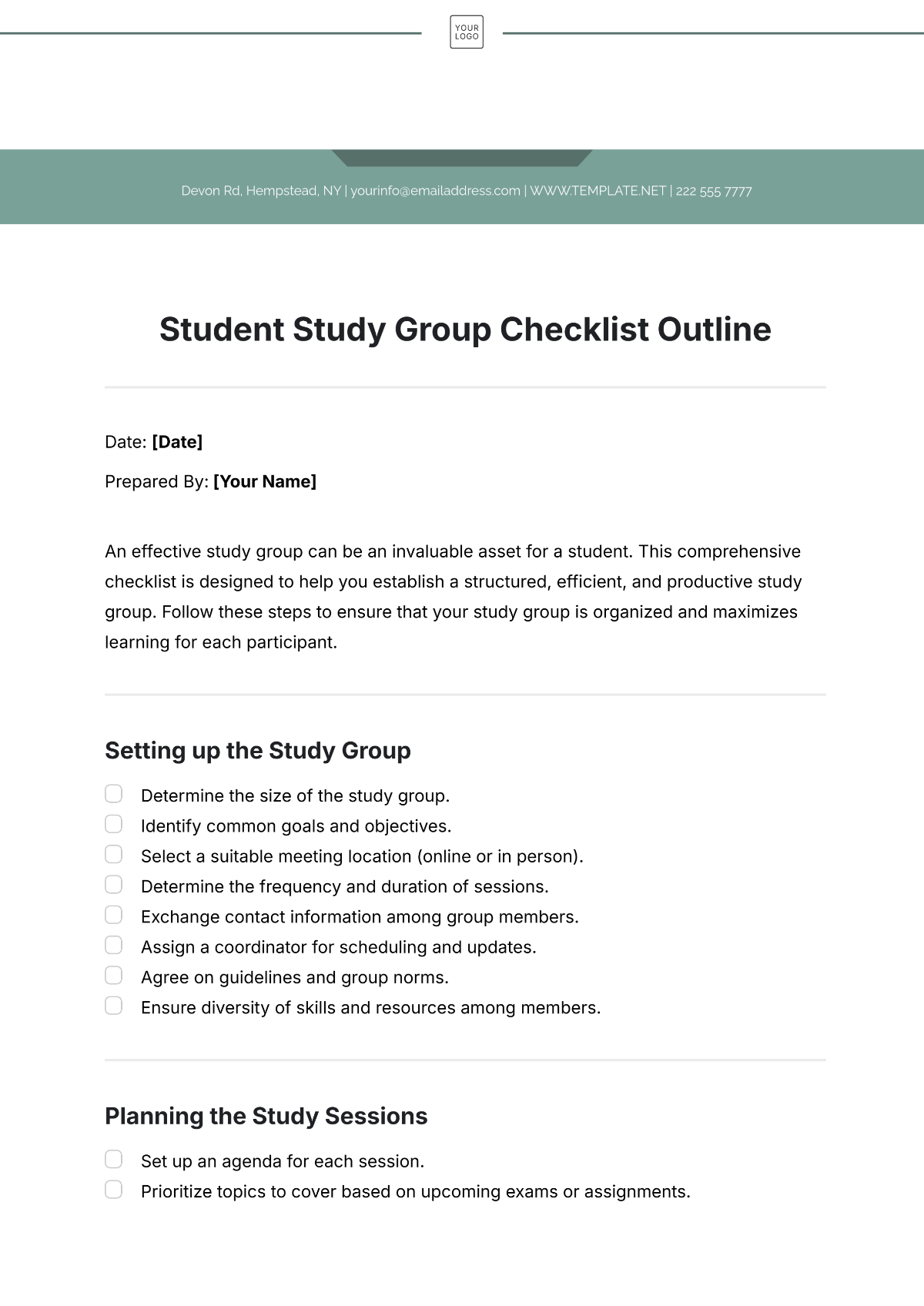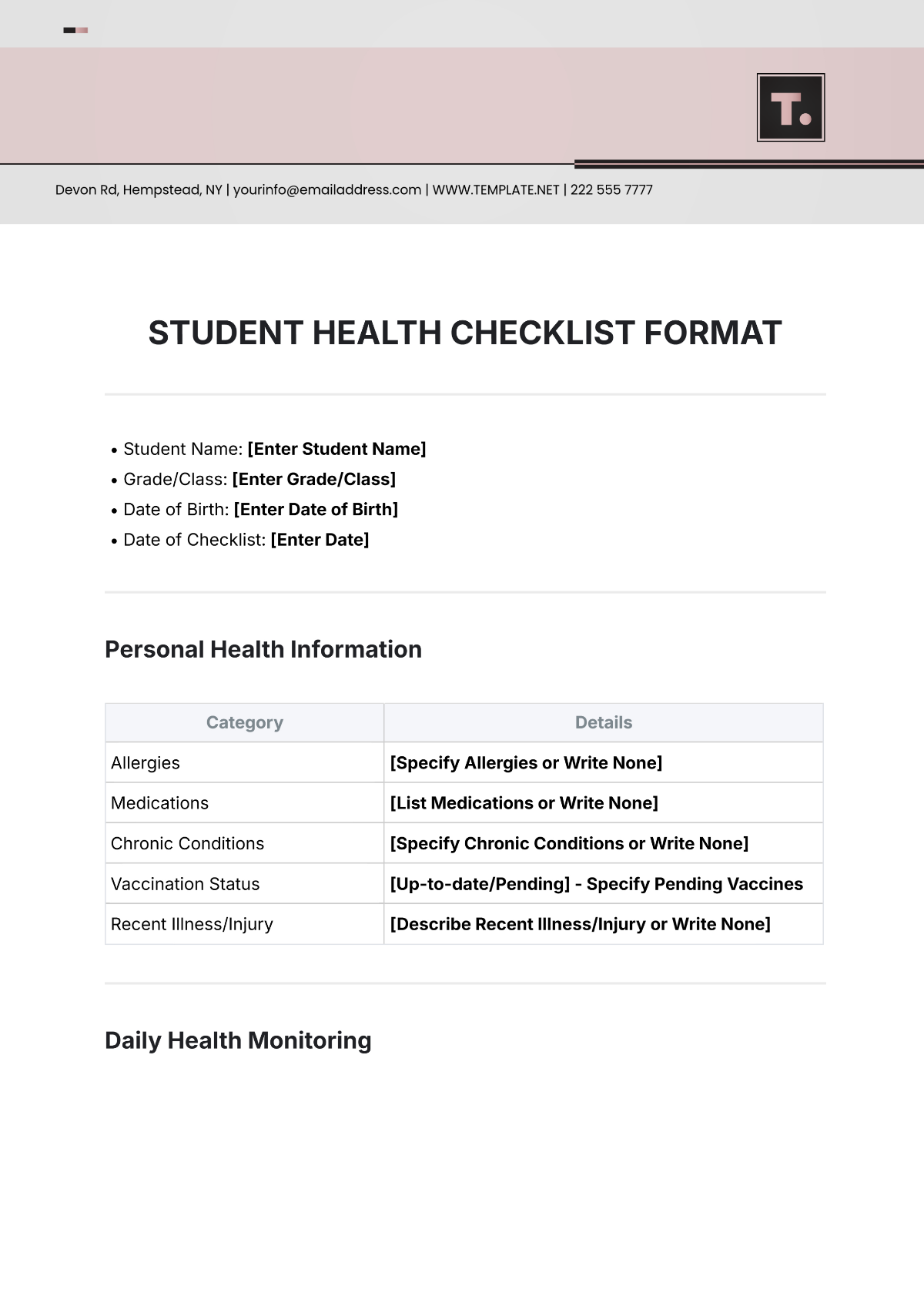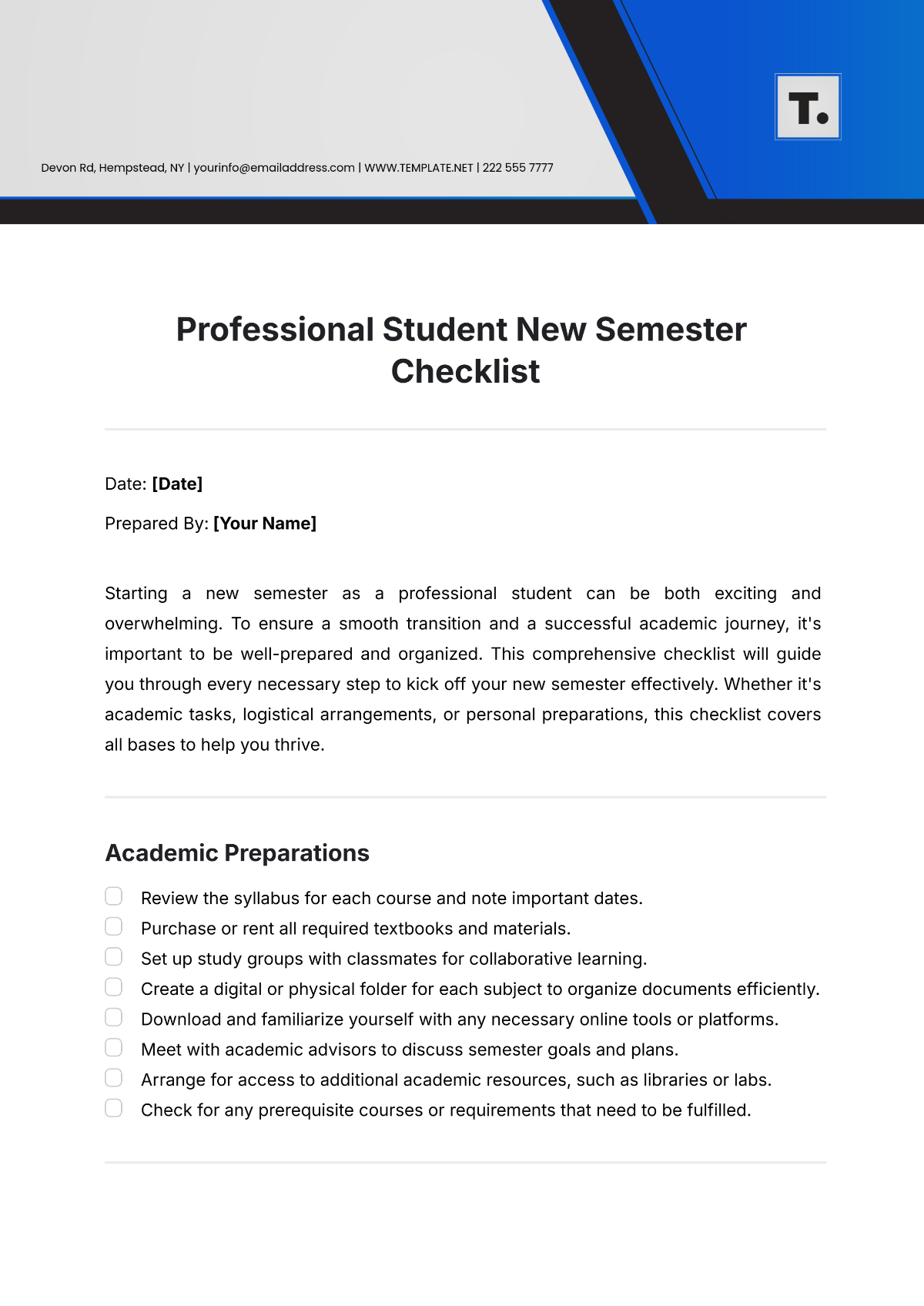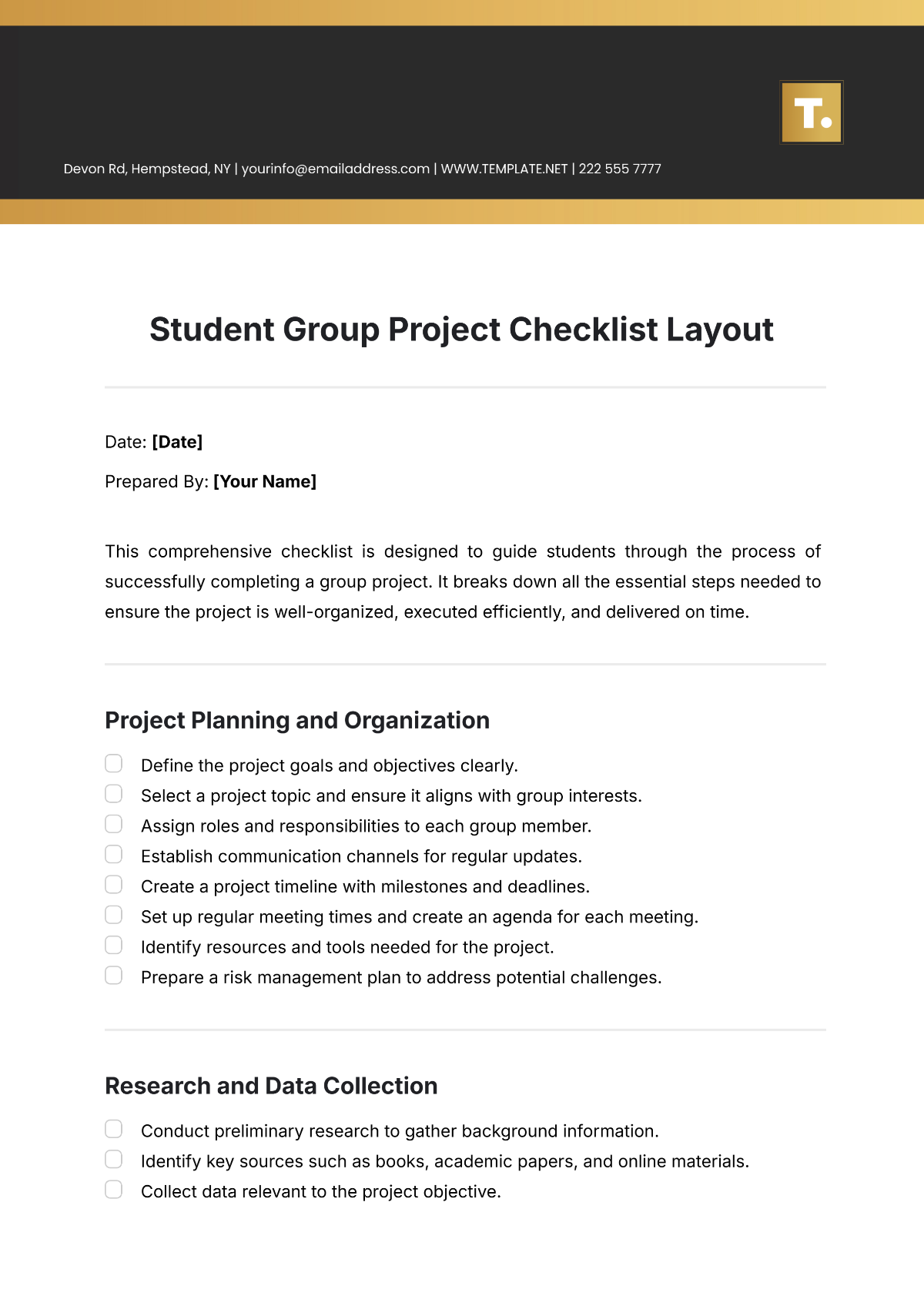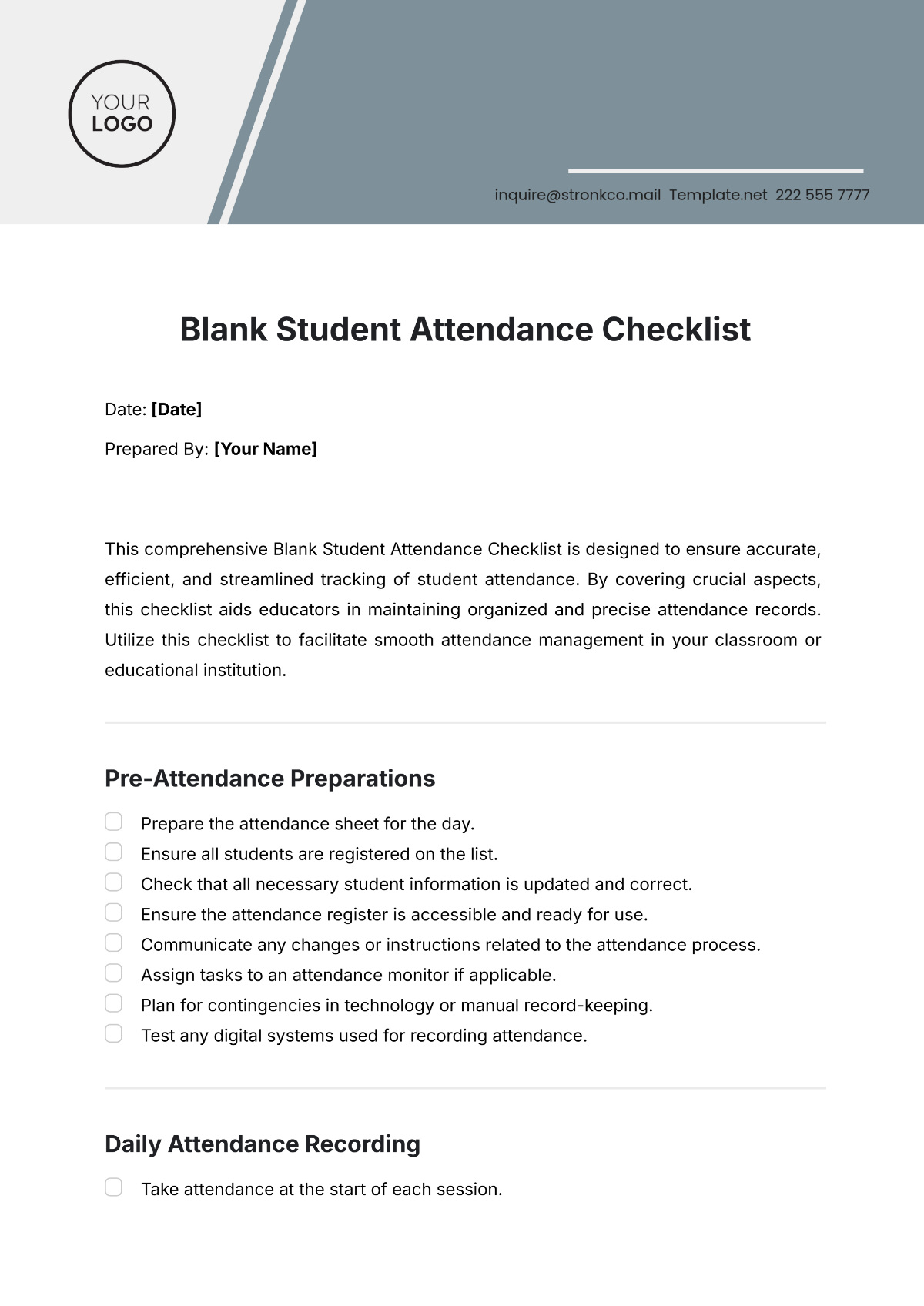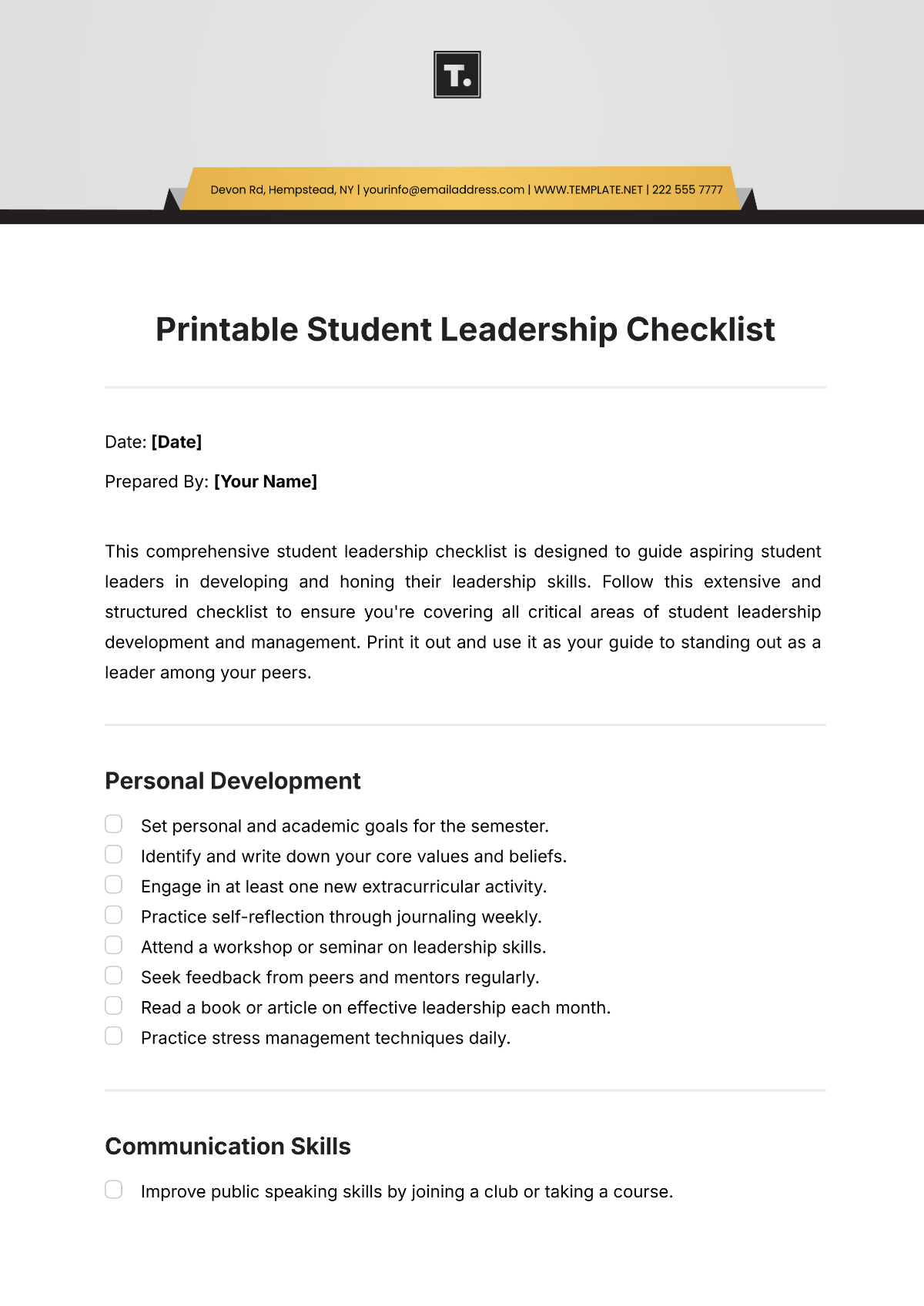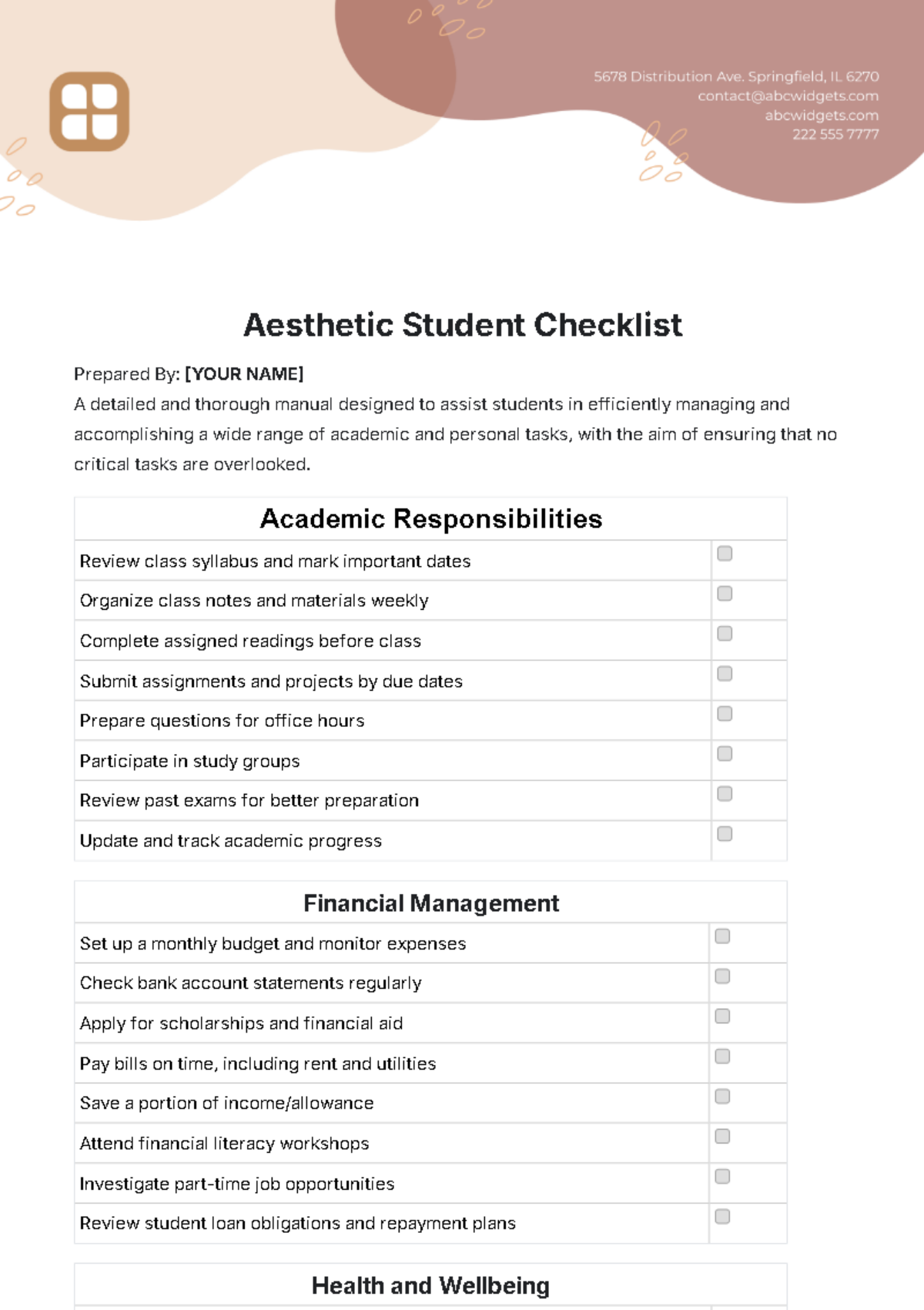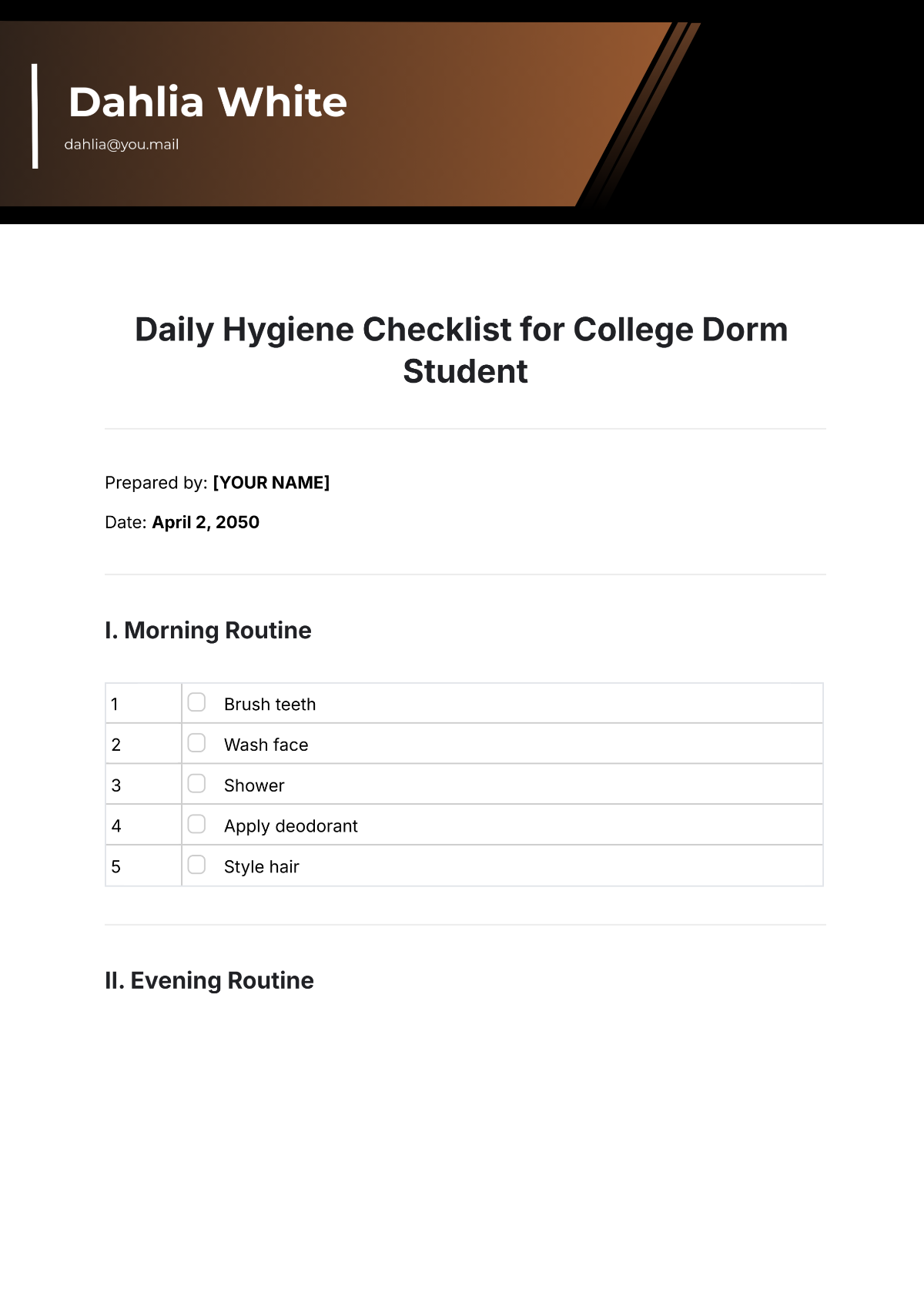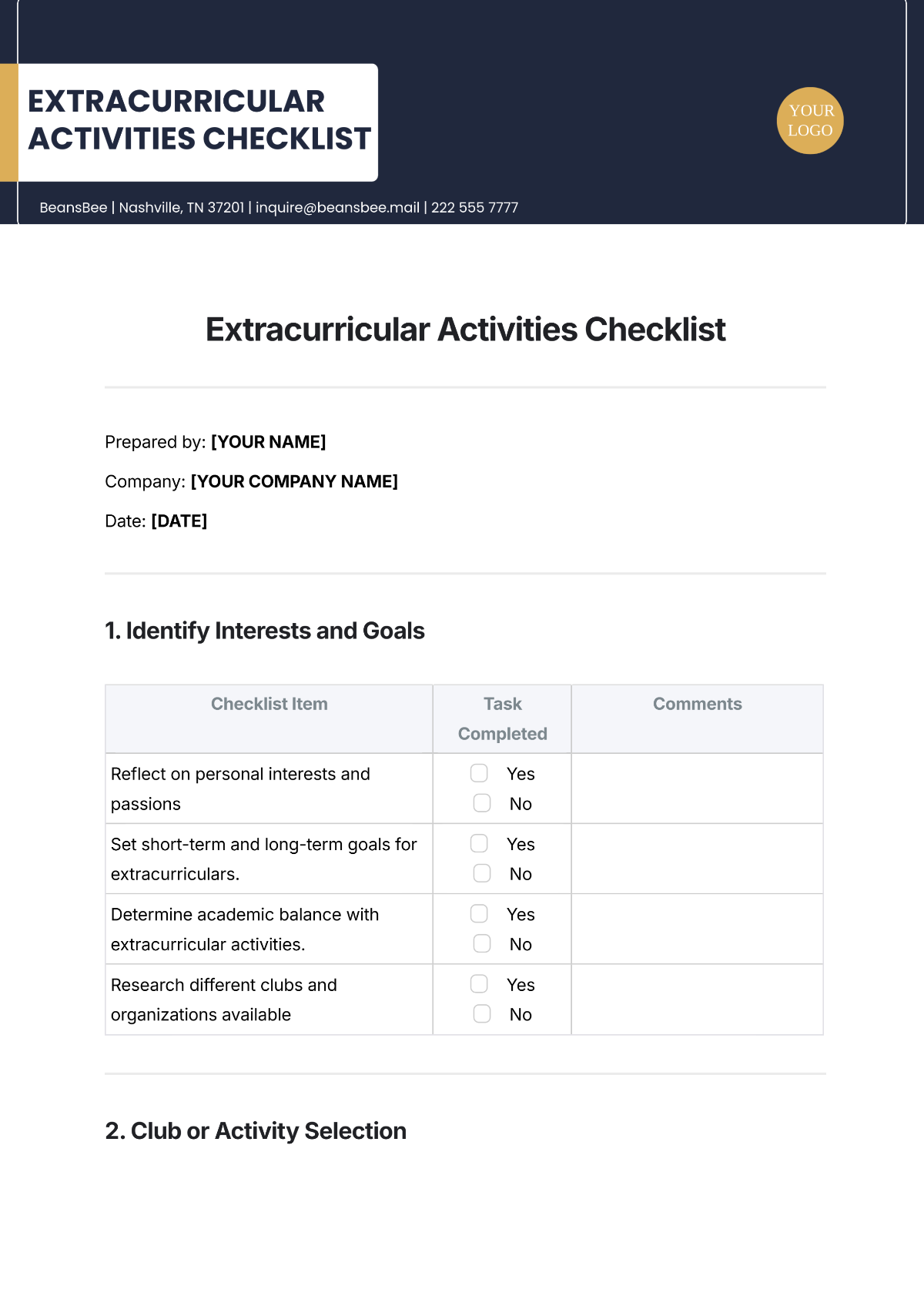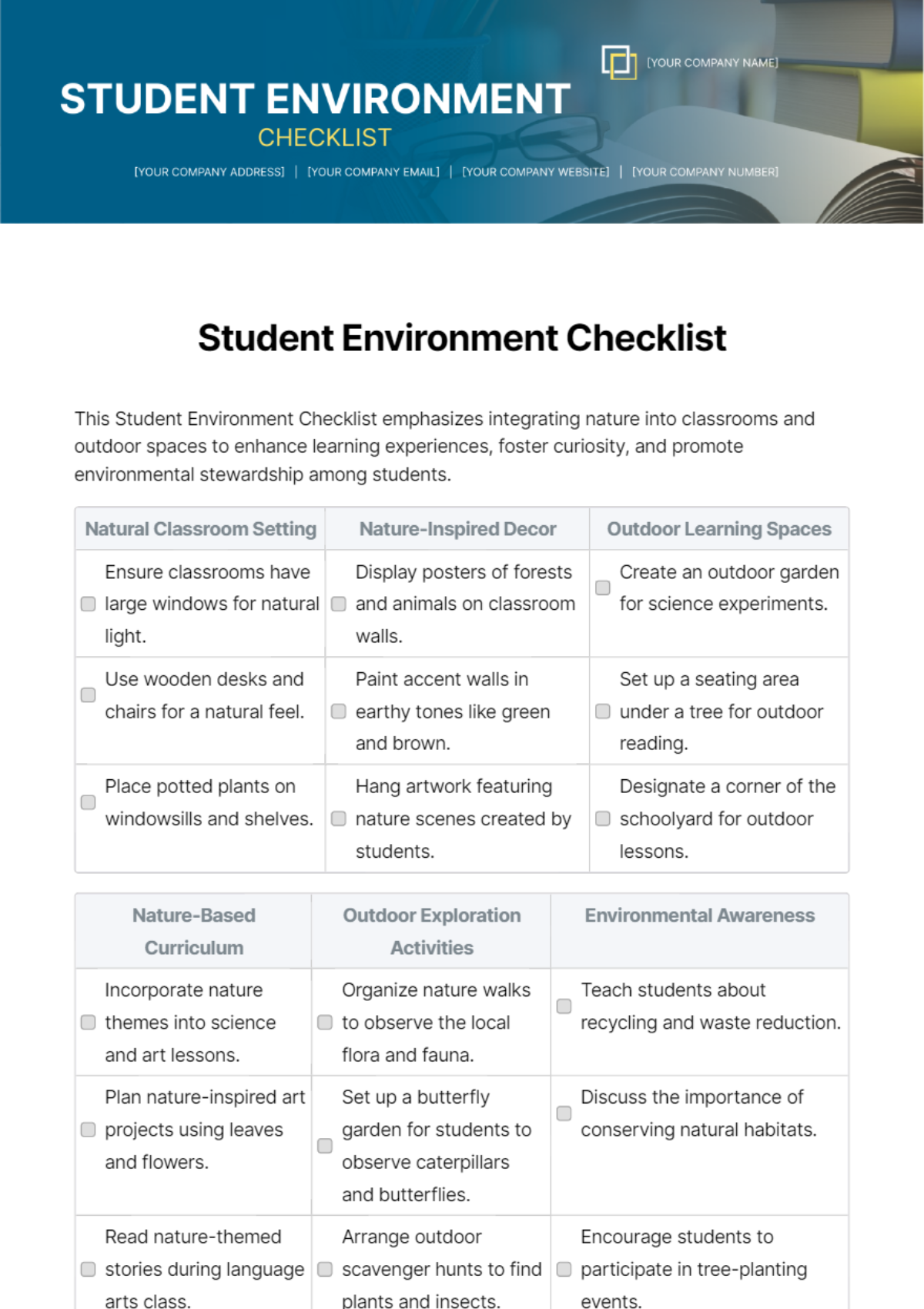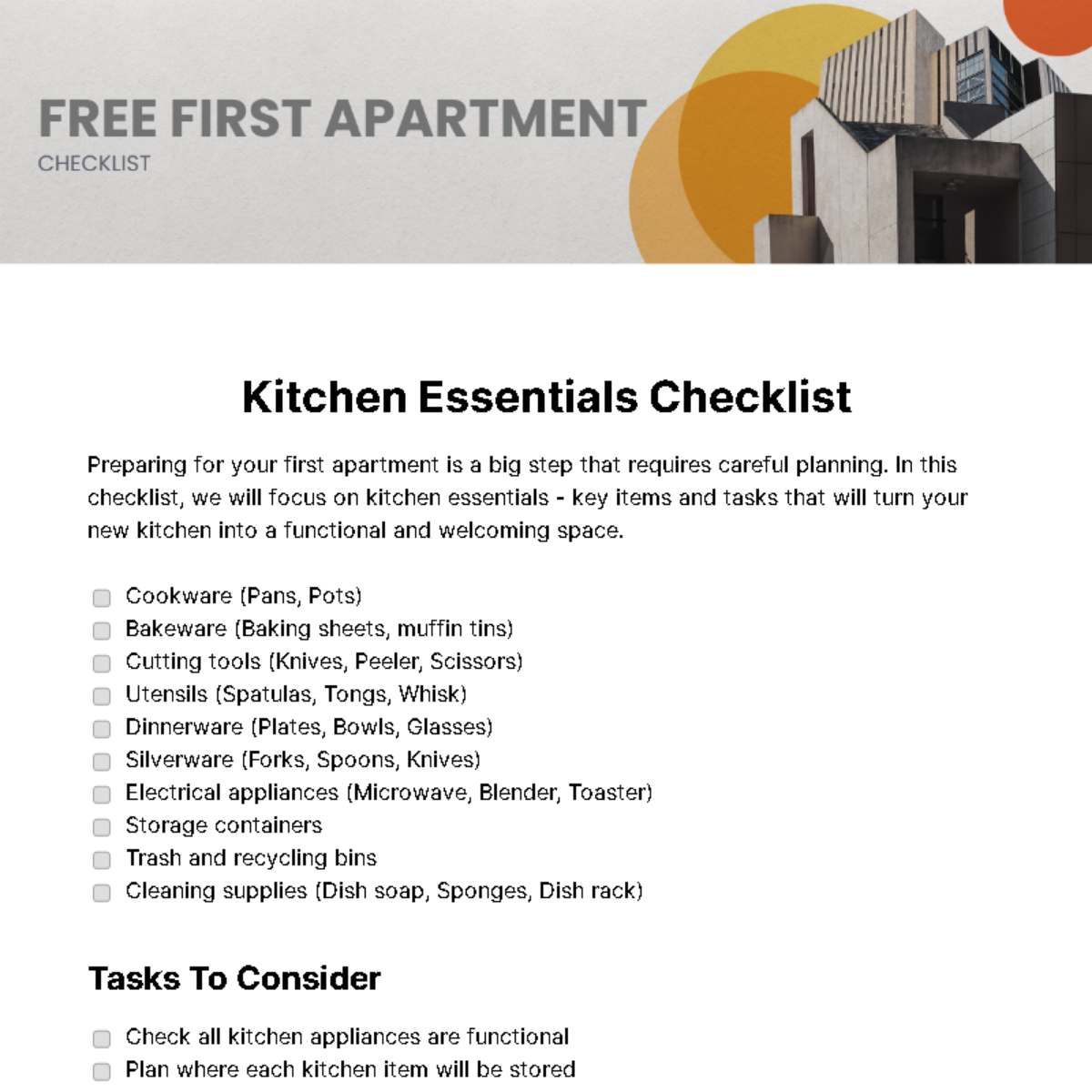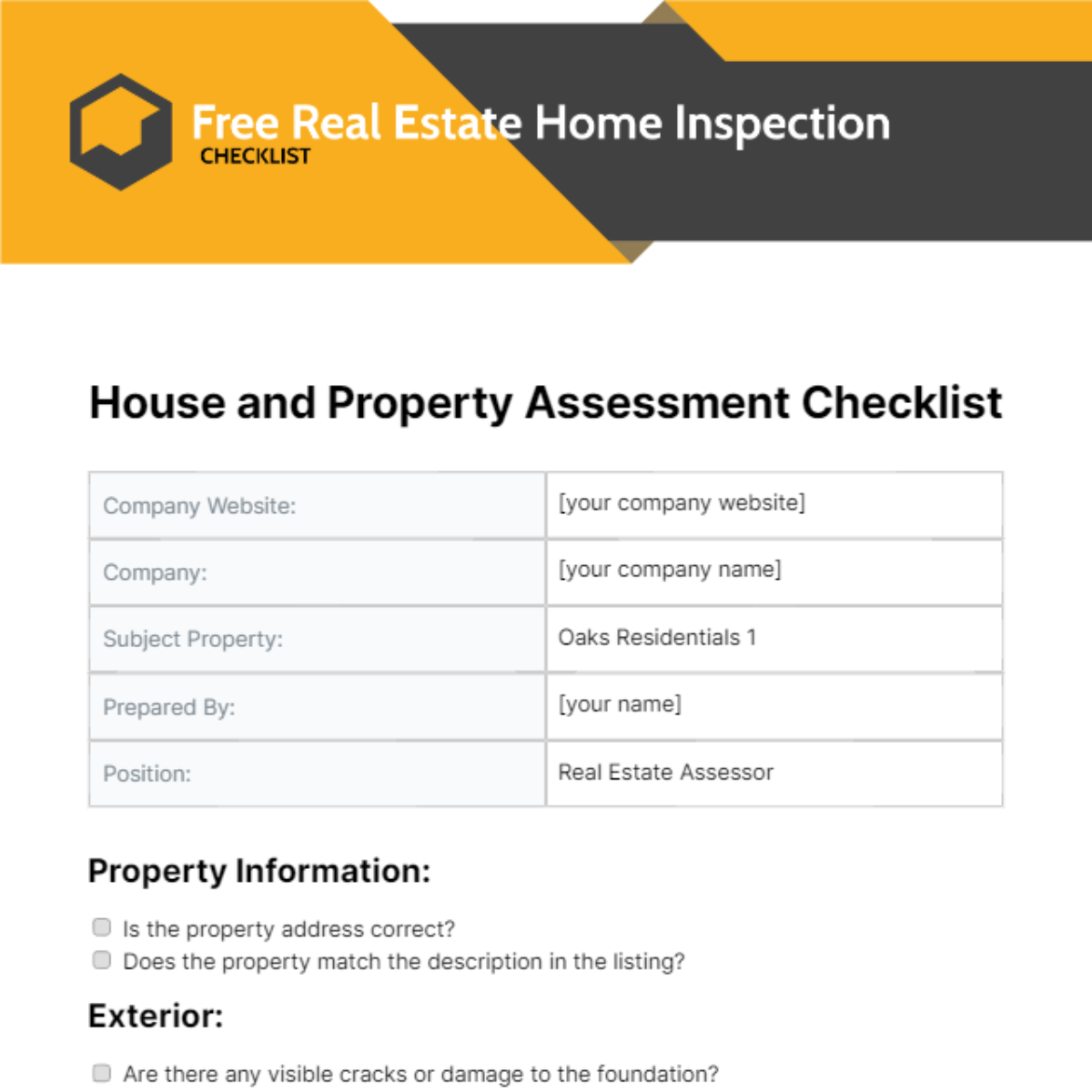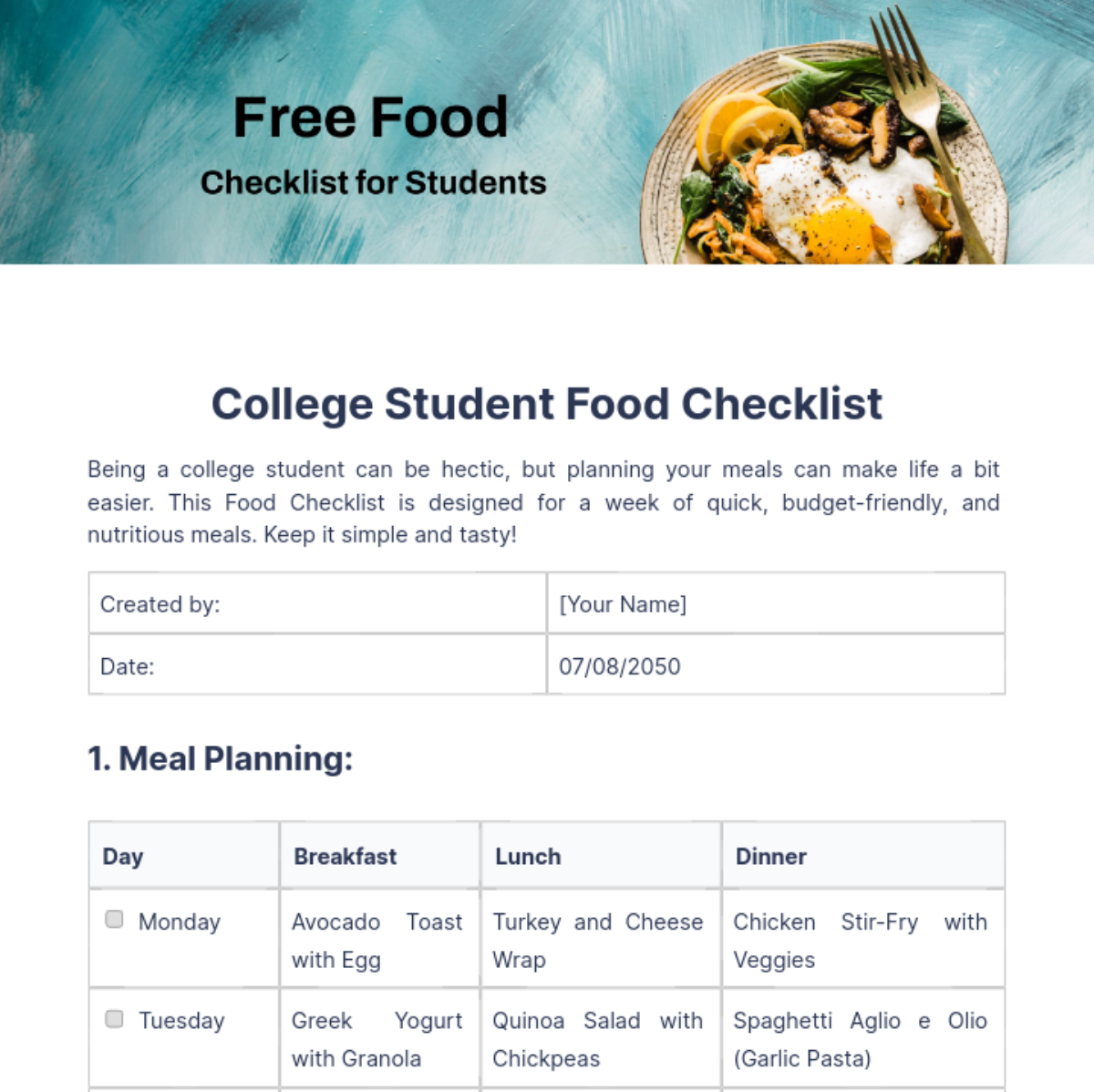Professional Student New Semester Checklist
Date: [Date]
Prepared By: [Your Name]
Starting a new semester as a professional student can be both exciting and overwhelming. To ensure a smooth transition and a successful academic journey, it's important to be well-prepared and organized. This comprehensive checklist will guide you through every necessary step to kick off your new semester effectively. Whether it's academic tasks, logistical arrangements, or personal preparations, this checklist covers all bases to help you thrive.
Academic Preparations
Review the syllabus for each course and note important dates.
Purchase or rent all required textbooks and materials.
Set up study groups with classmates for collaborative learning.
Create a digital or physical folder for each subject to organize documents efficiently.
Download and familiarize yourself with any necessary online tools or platforms.
Meet with academic advisors to discuss semester goals and plans.
Arrange for access to additional academic resources, such as libraries or labs.
Check for any prerequisite courses or requirements that need to be fulfilled.
Administrative Tasks
Ensure all tuition fees are paid or arrangements are in place.
Update your student profile with current contact information.
Verify your class schedule and adjust as necessary.
Secure your student ID card and any necessary campus access cards.
Set up a local bank account if needed for managing funds.
Enroll in any student health plans if not previously done.
Update or apply for housing accommodations, if residing on campus.
Check and understand the refund policies for dropped courses.
Technology Setup
Ensure your laptop or computer is in good working condition.
Install all necessary software and applications needed for classes.
Backup important data and documents to cloud storage or an external drive.
Ensure reliable internet connectivity for online classes or research.
Familiarize yourself with the university's digital platforms like email, portals, etc.
Set up a comfortable and distraction-free workstation.
Update antivirus software and security protocols on devices.
Register for and test remote access to campus resources.
Financial Planning
Create a budget that considers tuition, books, living expenses, and leisure activities.
Explore part-time job opportunities or internships if needed.
Apply for scholarships, grants, or financial aid as early as possible.
Set up automatic payments for recurring bills to avoid late fees.
Review and update your personal savings and investment plans.
Create an emergency fund for unexpected expenses during the semester.
Review your credit score and take steps to improve it if necessary.
Consult with a financial advisor for personalized financial strategies.
Personal Growth & Well-being
Set personal goals for academic achievements and personal development.
Establish a routine for physical exercise to maintain health.
Practice mindfulness or meditation to reduce stress and enhance focus.
Seek out clubs, organizations, or activities to meet new people and build a network.
Create a balanced diet plan to ensure proper nutrition.
Establish a sleep schedule that provides adequate rest.
Identify resources and support systems for mental health care.
Keep a journal or planner to organize daily activities and thoughts.
Campus & Community Engagement
Attend orientation programs or workshops to get acquainted with the campus.
Join student organizations or clubs related to your interests or field of study.
Volunteer for community service projects or local events.
Familiarize yourself with campus safety services and emergency protocols.
Network with peers, faculty, and alumni for guidance and mentorship.
Participate in campus events and activities to enrich your college experience.
Explore local cultural sites and activities to enhance your personal perspective.
Consider leadership roles within campus organizations to develop skills
Transportation & Travel
Research public transportation options and purchase necessary passes or cards.
Arrange for reliable daily commute arrangements.
Plan out routes and travel time for days when classes are scheduled early.
Ensure personal vehicles are up to date with maintenance and registration.
Explore carpooling options with friends or classmates.
Check for any travel restrictions if commuting from different regions.
Secure parking arrangements if driving to campus by car.
Stay informed about any transportation policy changes around campus.
Additional Reminders:
Frequently monitor your student email for crucial updates.
Explore on-campus job and internship opportunities early in the semester.
Stay organized with a planner or calendar to manage deadlines and appointments.
Keep emergency contact information updated and accessible.
Use student discounts for transport, software, and entertainment.
Maintain a healthy balance between academic work and social activities.
Set up a support network for motivation and accountability.
Review and adhere to all university policies and academic integrity guidelines.
